21st Annual Austin Bar Foundation Gala Raises Record $234,000
More than 500 guests attended the fairytale-themed Austin Bar Foundation Gala on Jan. 27, 2024, at the Four Seasons in downtown Austin.
The $234,089 raised at this year’s Gala is the most ever.
Members of the legal community arrived in their black-tie best, while others took advantage of the Gala’s theme, such as AYLA President Sarah Harp, who dressed in a red ballgown with black horns like Maleficent, and Austin Bar President Justice Chari L. Kelly in a sparkling pink-cream dress and blush pink roses in her hair.
Attendees enjoyed an elegant pre-event cocktail hour while perusing the auction items generously donated by Austin Bar members and Austin businesses.
After dinner, guests learned about the Austin Bar Foundation’s various projects and grant programs.
Afterward, the live auction took place, and guests bid on nine travel packages, such as a six-night stay in the Blue Ridge Mountains of North Carolina; a four-night stay in Park City, Utah; and a four-night stay at the U.K.’s oldest hotel with airfare for two included.
Following the live auction, Marty Murad with Murad Auctions led a lively Fund-a-Need session raising money for DEI-related
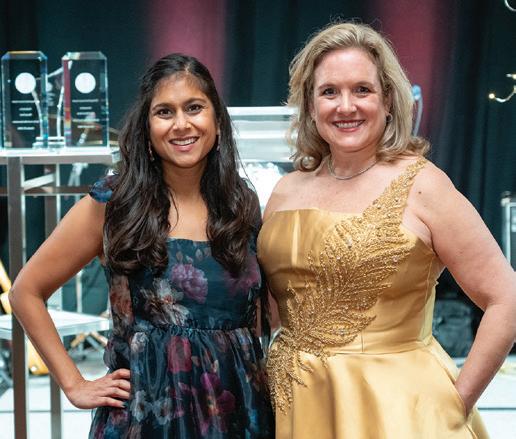
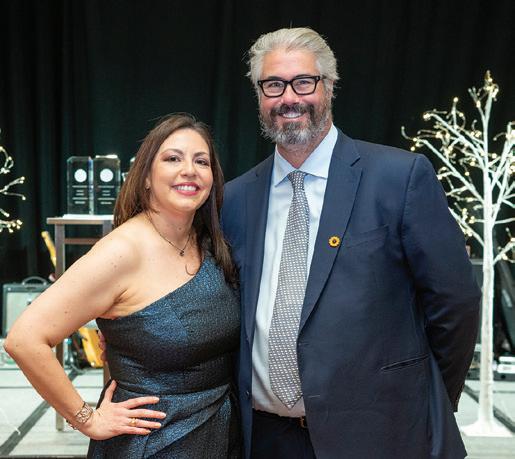
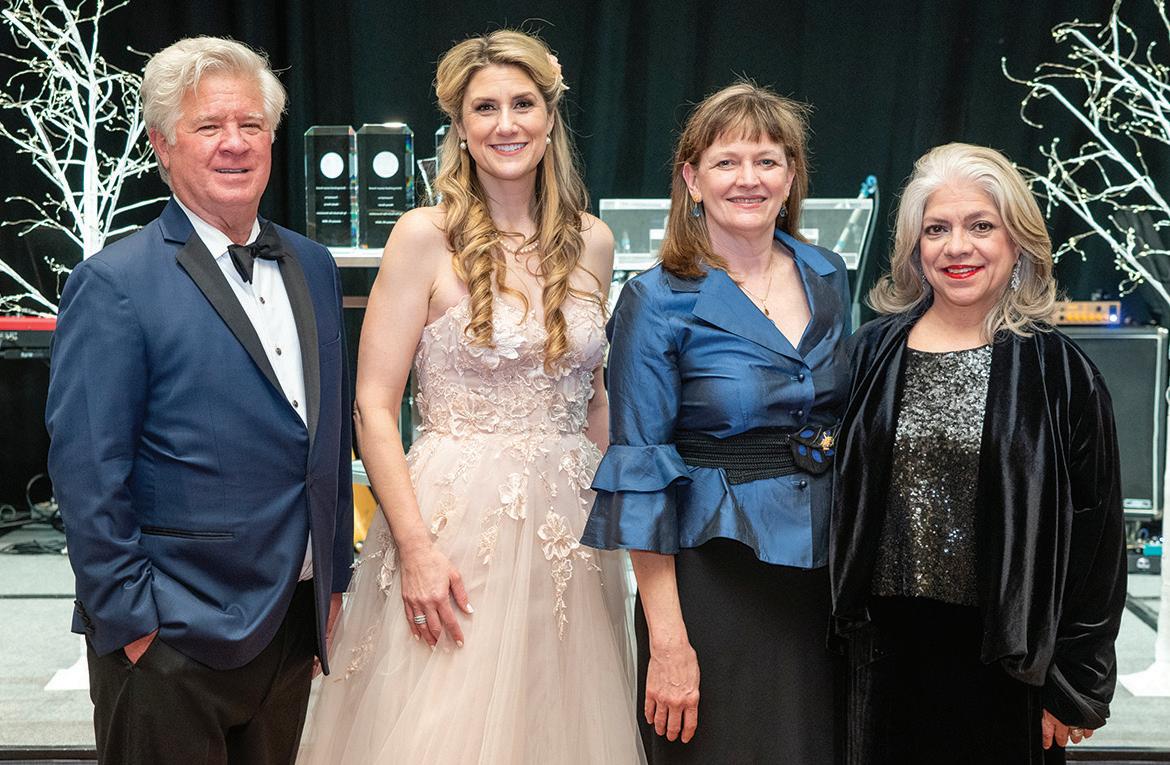
Howry of Howry Breen & Herman were this year’s Distinguished Lawyer honorees. Jeff Edwards of Edwards Law received this year’s David H. Walter Community Excellence Award.
legal services in Central Texas. Money raised from this portion of the program will be used to offer grants to Central Texas programs and entities offering DEI-related legal services.
Next came the highlight of the evening: the presentation of awards.
Edna Ramón Butts of Austin Independent School District, Marcy Hogan Greer of Alexander Dubose & Jefferson, and Randy
Antitrust
of the Texas Attorney General’s Office, and Lynn Boswell, AISD District 5 trustee, spoke about Butts. Laurie Bellegie Sharp and Catherine Morse spoke about Greer. Sean Breen, Laura Bellegie Sharp, Stephen E. McConnico, and Matt Dow spoke about Howry. Patrick
All four honorees’ careers and accomplishments were recapped in video presentations filmed and edited by Austin production company You & I Creative Co. (youandicreate.co). continued on page 32.
Donate to the Austin Bar Foundation!
Donations are still welcomed. Please use this QR code to make a donation that will support and expand the Foundation’s legalrelated charitable and education programs in Central Texas.

austinbar.org MARCH 2024 | VOLUME 33, NUMBER 2
David Talbot, retired chief of the
Division
(L-R): Foundation Gala Committee CoChairs Nadia Bettac and Mary-Ellen King.
(L-R): Foundation Chair Amanda Arriaga and Jeff Edwards. Edwards was the recipient of this year’s David H. Walter Community Excellence Award.
(L-R): Randy Howry, Austin Bar President Justice Chari L. Kelly, Marcy Hogan Greer, and Edna Ramón Butts. Howry, Greer, and Butts were the recipients of this year’s Distinguished Lawyer Award.
I love
I’m not sure why I waited so long to get it set up.








Get started at lawpay.com/austinbar 866-730-4140 TOTAL: $1,500.00 New Case Reference **** **** **** 9995 *** Trust Payment IOLTA Deposit YOUR FIRM L OGO HERE PAY AT TO RNEY PO WE R ED BY 22% increase in cash flow with online payments Vetted and approved by all 50 state bars, 70+ local and specialty bars, the ABA, and the ALA
of bills sent online are paid in 24 hours Data based on an average of firm accounts receivables increases using online billing solutions. LawPay is a registered agent of Synovus Bank, Columbus, GA., and Fifth Third Bank, N.A., Cincinnati, OH.
by 50,000 law firms, LawPay is a simple, secure solution that allows you to easily accept credit and eCheck payments online, in person, or through your favorite practice management tools.
62%
Trusted
LawPay!
–Law Firm in Ohio + Member Benefit Provider
NEWS & ANNOUNCEMENTS
Austin Bar’s Got Talent!
Austin Bar’s Got Talent will take place on April 3, 2024, at Hilgers House from 6:30 to 8:30 p.m. If you previously bought tickets or paid for a sponsorship, those will carry over. If you are interested in attending or sponsoring, visit austinbar.org. If you are interested in performing, contact brad@houstonfishlaw.com.


CONNECTIONS
ONLINE
austinbar.org
EMAIL
billy@austinbar.org
MAIL
Austin Bar Association
712 W. 16th Street Austin, TX 78701
App available on iPhone and Android.
SOCIAL




LIKE
facebook.com/austinbar
FOLLOW
twitter.com/theaustinbar
FOLLOW instagram.com/theaustinbar
CONNECT
https://www.linkedin.com/ company/austin-bar-
WATCH

vimeo.com/austinbar
CONTENTS INSID E austinbar.org ONLINE
INL AW Y ER AL AL
wanted a Texas legal malpractice insurance company that’s loyal to its customers. Heck, we’ve been doing that since 1979. It’s in our DNA. You wanted a provider that was committed to building relationships with our members to keep them happy, feeling respected and customers for life. We listened. Be Heard. TLIE.ORG or (512) 480-9074 LOYAL. 3_625x3_625in_Austin Lawyer_TLIE LOYAL Ad_2024.indd 1 1/4/24 10:02 AM 1 21st Annual Austin Bar Foundation Gala Raises Record $234,000 18 Decriminalizing Mental Health in Travis County: Part 7 20 American Bar Association Launches Pilot Program to Help Afghan Legal Professionals 22 New Law Aims to Improve Access to AP Math Courses for Students of Color in Texas 24 Austin Bar Judicial Preference Poll Results 25 Austin Bar Members Emerge Victorious in Toxic Mold Lawsuit as Plaintiff, Attorney 26 Houston Program Teaches Prisoners Speech and Debate 28 ADL Releases Texas Hate Crime Report 30 Bending the Rules: TAJC Recommends Allowing Paraprofessionals to Provide Limited Legal Representation IN EVERY ISSUE 10 Briefs 12 AYLA 14 Federal Civil Court Update 15 Third Court of Appeals Civil Update 16 Third Court of Appeals Criminal Update DEPARTMENTS 6 President’s Column 8 Be Well 34 Entre Nous MARCH 2024 | VOLUME 33, NUMBER 2 MARCH 2024 | AUSTINLAWYER 3
AU ST
You
MARCH 22 ADR/Construction CLE 12 - 1 p.m. CFCF Lunch provided Register at austinbar.org. UPCOMING EVENTS

AUST INL AW Y ER AL AL
OFFICIAL PUBLICATION OF THE AUSTIN BAR ASSOCIATION
AUSTIN BAR ASSOCIATION
Justice Chari Kelly President
Mary-Ellen King President-Elect
Maitreya Tomlinson Secretary
Judge Maya Guerra Gamble Treasurer
Amanda Arriaga Immediate Past President
AUSTIN YOUNG LAWYERS ASSOCIATION
Sarah Harp President
Emily Morris President-Elect
Jenna Malsbary Treasurer
Gracie Wood Shepherd Secretary
Blair Leake Immediate Past President
Austin Lawyer
©2024 Austin Bar Association; Austin Young Lawyers Association
EXECUTIVE OFFICES
712 W. 16th Street Austin, TX 78701
Email: austinbar@austinbar.org
Website: austinbar.org
Ph: 512.472.0279
DeLaine Ward Executive Director
Debbie Kelly Associate Executive Director
Rachael K. Jones Editor-In-Chief
Billy Huntsman Managing Editor
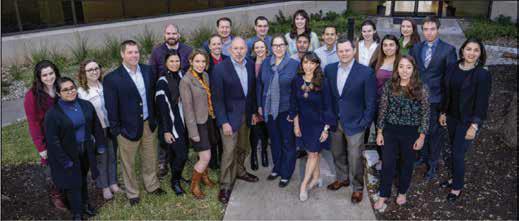

Austin Lawyer (ISSN #10710353) is published monthly, except for July/August and December/January, at the annual rate of $10 membership dues by the Austin Bar Association and the Austin Young Lawyers Association, 712 W. 16th Street, Austin, TX 78701. Periodicals Postage Paid at Austin, Texas. POSTMASTER: Send address changes to Austin Lawyer, 712 W. 16th Street, Austin, TX 78701.
Austin Lawyer is an award-winning newsletter published 10 times a year for members of the Austin Bar Association. Its focus is on Austin Bar activities, policies, and decisions of the Austin Bar board of directors; legislation affecting Austin attorneys; and other issues impacting lawyers and the legal professionals. It also includes information on decisions from the U.S. District Court for the Western District of Texas and the Texas Third Court of Appeals; CLE opportunities; members’ and committees’ accomplishments; and various community and association activities.
The views, opinions, and content expressed in this publication are those of the author(s) or advertiser(s) and do not necessarily reflect the views or opinions of the Austin Bar Association membership, Austin Bar Association board of directors, or Austin Bar Association staff. As a matter of policy, the Austin Bar Association does not endorse any products, services, or programs, and any advertisement in this publication should not be construed as such an endorsement.
Contributions to Austin Lawyer are welcome, but the right is reserved to select and edit materials to be published. Please send all correspondence to the address listed above. For editorial guidelines, visit austinbar.org in the “About Us” tab.



4 AUSTINLAWYER | MARCH 2024
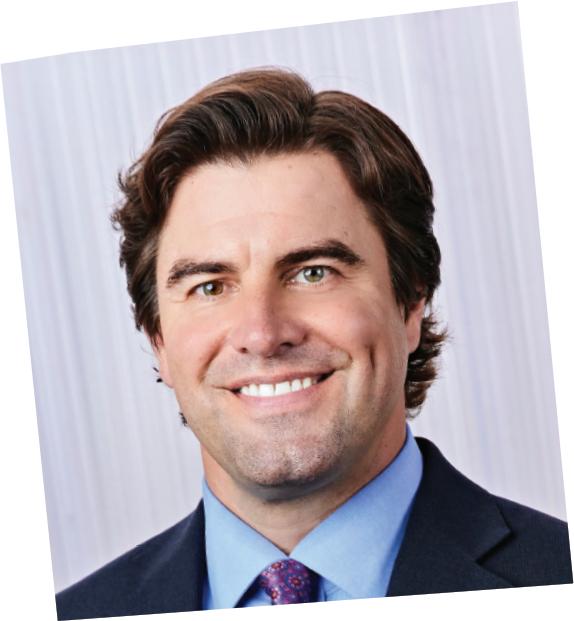
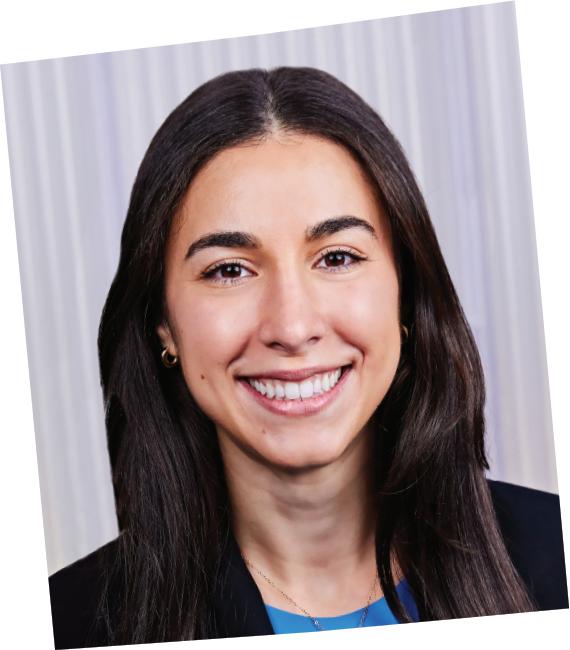




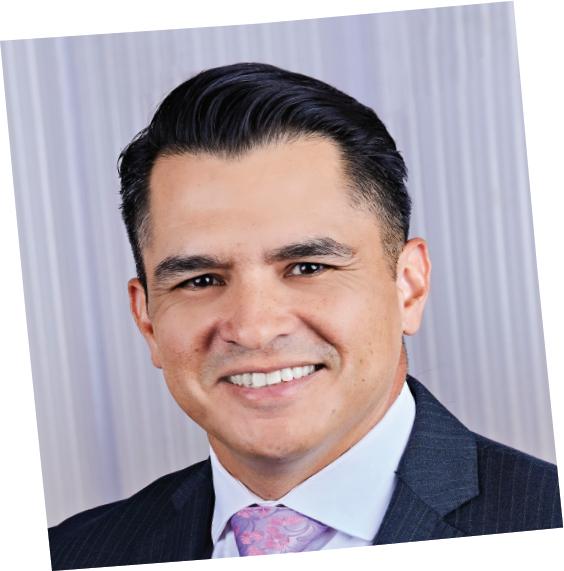

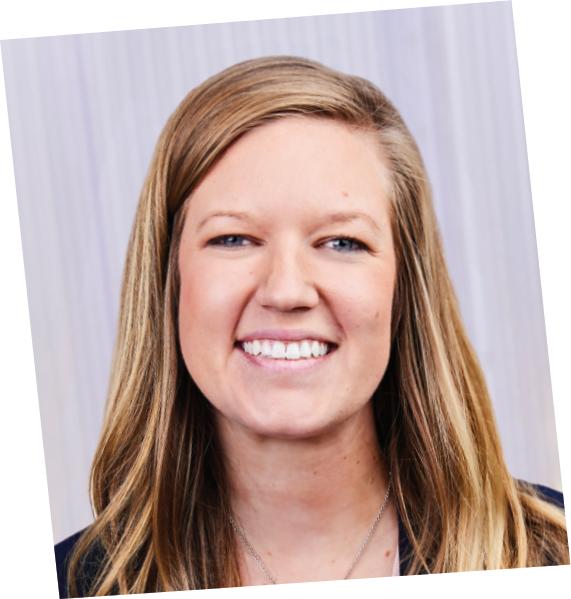



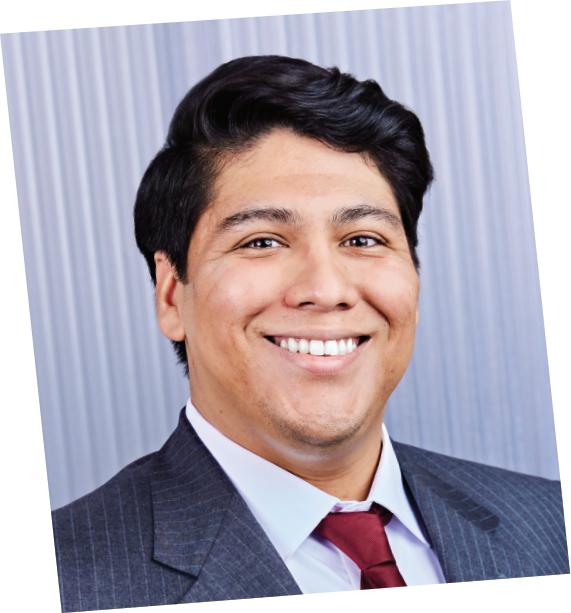



With spring coming, we are reminded of the many projects that we have unfinished, both personally and professionally. Everything from closet organization to writing that CLE article looms before you. But how do you tackle it? Here are some tips that I have found motivating to spring myself out of a funk and into action:
Break Things Into Time Chunks
Often, starting a task can be the hardest part. If a task seems overwhelming and stressful, many of us procrastinate. “I don’t have time to finish that now, so I will just look at it later.” And later never comes. Instead of resorting to the all-toofamiliar procrastination method, break up your task into chunks. First, make a list of all the things you need to do to complete the task. Then, devote a short
How to Spring Yourself Out of a Funk
BY JUSTICE CHARI L. KELLY, THIRD COURT OF APPEALS
amount of time, be it five minutes or one hour, to one of the steps. For example, if your entire closet overwhelms you—as often happens to me—put a timer on your phone and spend five minutes reorganizing one section. I don’t have time to go through everything, and the thought of that terrifies me, but reorganizing my dress shirts for a few minutes feels less scary. Often, this first small chunk of time can motivate you to go even longer in tackling the task.
Promise Yourself a Reward
Sometimes promising yourself a reward can get you going when you are stuck. The treat can be something simple: “If I spend an hour on this motion, I am going to take a break and grab a coffee or a piece of chocolate.” Or it can be something big: “Once this trial is over, I am buying a new car.” I’m leaving the size of the treat up to your good judgment; the point is that it gives you something to look forward to.
Forgive Yourself and Let Failure Be a Motivator
Marilyn vos Savant said, “Being defeated is only a temporary condition. Giving up is what makes it permanent.” Forgive yourself when things don’t go as planned. Don’t waste time beating yourself up. Instead, acknowledge the problem, tell yourself it’s in the
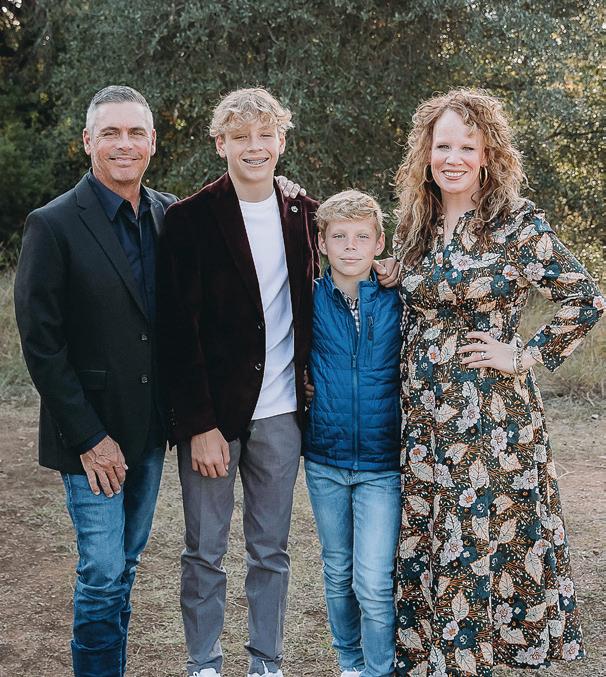

past, and tackle it another way. For example, if you failed that board certification test, tell yourself that’s okay, and start thinking of more productive ways to study and handle the test again.
Take a Break
If you find yourself hitting a mental wall, consider taking a break. William S. Helton, Ph.D., a professor of human factors and applied cognition at George Mason University, showed that short breaks can improve attention. They gave university students a test that required sustained attention mapping train routes. One group received no break during the 45-minute task. The other students took a five-minute break to either sit quietly, listen to music, watch a music video, or spend the break however they wished. No
matter which type of break they were given, all the participants who took a break performed better than their classmates who had continuous work.1
If you find yourself needing a break, register for our upcoming Bench Bar conference to unwind with your colleagues while earning valuable CLE! It’s on May 17, 2024, at the Kalahari Resort in Round Rock, and it promises a full day of CLE, great speakers, and plenty of opportunity to get to know local judges. I hope to see you there! AL
ENDNOTE
1. Kirsten Weir, “Give Me a Break: Psychologists Explore the Type and Frequency of Breaks We Need to Refuel our Energy and Enhance Our Well-Being,” Monitor on Psychology, January 2019, Vol 50, No. 1.

PRESIDENT’S COLUMN Chris Andre New Vehicle Leasing / Pre-Owned Sales Domestics / Imports / Exotics Busy Schedule? Call me. Home or Office Viewing and Delivery Any Make. Any Model. Email | chris@appleleasing.com Phone | 512.653.3718
6 AUSTINLAWYER | MARCH 2024

Thank You to Our Sponsors!
FOUNDATION SPONSORS
Civil Litigation Section
Howry Breen & Herman (2)
Sandoval & James
TABLE SPONSORS
Alexander Dubose & Jefferson
Armbrust & Brown
Bollier Ciccone
Byrd Davis Alden & Henrichson
Chamberlain McHaney
Edna & George Butts
Edwards Law
Gordon Rees Scully Mansukhani
Graves Dougherty Hearon & Moody
Greenberg Traurig
Holland & Knight
Jackson Walker
King & Spalding
Kirker Davis
Lloyd Gosselink
McGinnis Lochridge
Enoch Kever
FBFK
Haynes and Boone
Kelly Hart & Hallman
Kimbrough Legal
Randy Ray’s Posse
The Roarty Law Firm
South Texas College of Law - Houston
State Bar of Texas
Terrazas
VBPena Law
Whitehurst Harkness Brees Cheng Alsaffar
Higginbotham & Jacob
BAR SPONSORS
Latitude Legal
Rose Resolution Group
Just Well Law
Hendler Flores Law
Holly Taylor for Criminal Appeals Place 1
CIGAR SPONSOR
The Tomlinson Firm
DECORATIONS SPONSOR

Norton Rose Fulbright
Richards Rodriguez & Skeith
Scott Douglass & McConnico
Slack Davis Sanger
Thompson Coe
Weisbart Springer Hayes
HALF TABLE SPONSORS
Butler Snow
Cain & Skarnulis
Diggs & Sadler

Judge Jan Soifer, 345th District Court
DESSERT SPONSORS
Judge Maya Guerra Gamble, 459th District Court
The Roarty Law Firm
PHOTO BOOTH SPONSOR
Collaborative Divorce Austin
SILENT AUCTION SPONSOR
Judge Karin Crump for 3rd Court of Appeals
MARCH 2024 | AUSTINLAWYER 7
Improve Your Health by Setting Small Goals
BY STEPHANIE R. HOLAN, HOLAN LAW PLLC


Stephanie R. Holan is the founding member of Holan Law, PLLC. Ms. Holan practices family law, criminal defense, and education law. Ms. Holan received her Bachelor of Science degree from The University of Texas at Austin in applied learning and development, her master’s degree in education from Lamar University, and received her Juris Doctorate from Texas A&M University School of Law.
Halfway into February, most of us who made resolutions regarding health and fitness have fallen off the wagon. As attorneys, we are constantly told that the level of stress we are under is not good for our minds or bodies. We are told that we can call TLAP to speak to a counselor if needed. But, as we all know, we are hesitant to call TLAP because establishing mental or emotional health issues can also cause problems that affect our licenses or ability to practice, i.e. our livelihood. If you document these issues, then clients, bosses, etc. can file grievances saying we cannot competently complete our jobs. Regardless of what we are told about confidentiality, we do not trust it. We rely on our own devices. We rely on our own stress management techniques. Most of us decide exercise is a great way to burn off stress. Exercise gives you endorphins. Endorphins make you happy. Right?
In January, the health club I am
a member of emailed all its clients and said they would not sign any new contracts on New Year’s Day. The email went on to say that the hurdle of making a massive fitness commitment ‘cold turkey’ will fail because it is too difficult to implement. This email made me feel oddly comforted, but it also made me consider how I try to handle my mental, emotional, and physical health. Many of us vow that we are changing all the things immediately. We set ourselves up for failure. Then, when we do fail because there is not enough time, not enough energy, not enough of a desire to overcome either of those problems, we criticize ourselves. The worst prison you can ever be stuck in is your own body and mind when you are unhappy with both.
What to do, then, if a big change doesn’t have staying power? I gave this serious thought. I am now going to confess something: I hate drinking water. Diet Coke? Yes. Coffee with creamer, yes. Water? HATE. HATE. HATE. It is wet air and always makes me feel nauseated. (According to my doctor, it has to do with me not having enough salt in my diet.). But I know that water is important. I know that I have vowed to ‘drink eight glasses of water a day’ but repeatedly failed. So I made myself a deal: Since eight
Feeling the smallest amount of success and accomplishment gives us a feeling of control over something in our lives and reduces our stress.
was something I have never been able to sustain, I decided to try a much smaller goal. One glass. I will drink one glass of water a day. And because I hate it, the first thing I do when I get to the kitchen after waking up is get a glass of water and chug it. I get it out of the way. Then I feel a weird sort of smugness that I have, in fact, drunk at least one glass of water.
So, what does my one glass of water do for you? It enables you to use my disgust of drinking water to make your own micro-goal. I want you to think about everything physically, mentally, and emotionally that you would like to change. Then, pare it down to micro-steps. Instead of “I will walk three miles every day,” try “I will walk around my block three times.” Then do it. If you are struggling emotionally, don’t try to force yourself to cover your moods or feelings. Toxic positivity is toxic. Feelings are for feeling. Denial will not help. Instead, when you feel overwhelmed or upset, look at pictures of baby animals
or look at memes or Google your dream kitchen and imagine you are in it. You get the idea. If you never have time to clean everything at once, instead choose to make sure the kitchen sink is empty before going to bed every night. Are these life-changing? No. And yes. Feeling the smallest amount of success and accomplishment gives us a feeling of control over something in our lives and reduces our stress. It really is nice to wake up with no dirty dishes in the sink.
Being a lawyer is a hard job. No one ever needs a lawyer when they are not in crisis. And yes, they are all in crisis. We are crisis managers all day long, and then we take on ‘management’ of our homes. It is no wonder we feel constant pressure. So, dear readers, I have a challenge for you: Choose a ridiculously small task that is part of a larger goal. Then keep track of doing it, and share here. I would love to hear what your tiny goals are and share them in this column. Maybe your tiny goal is one we can all benefit from. AL
BE WELL
8 AUSTINLAWYER | MARCH 2024
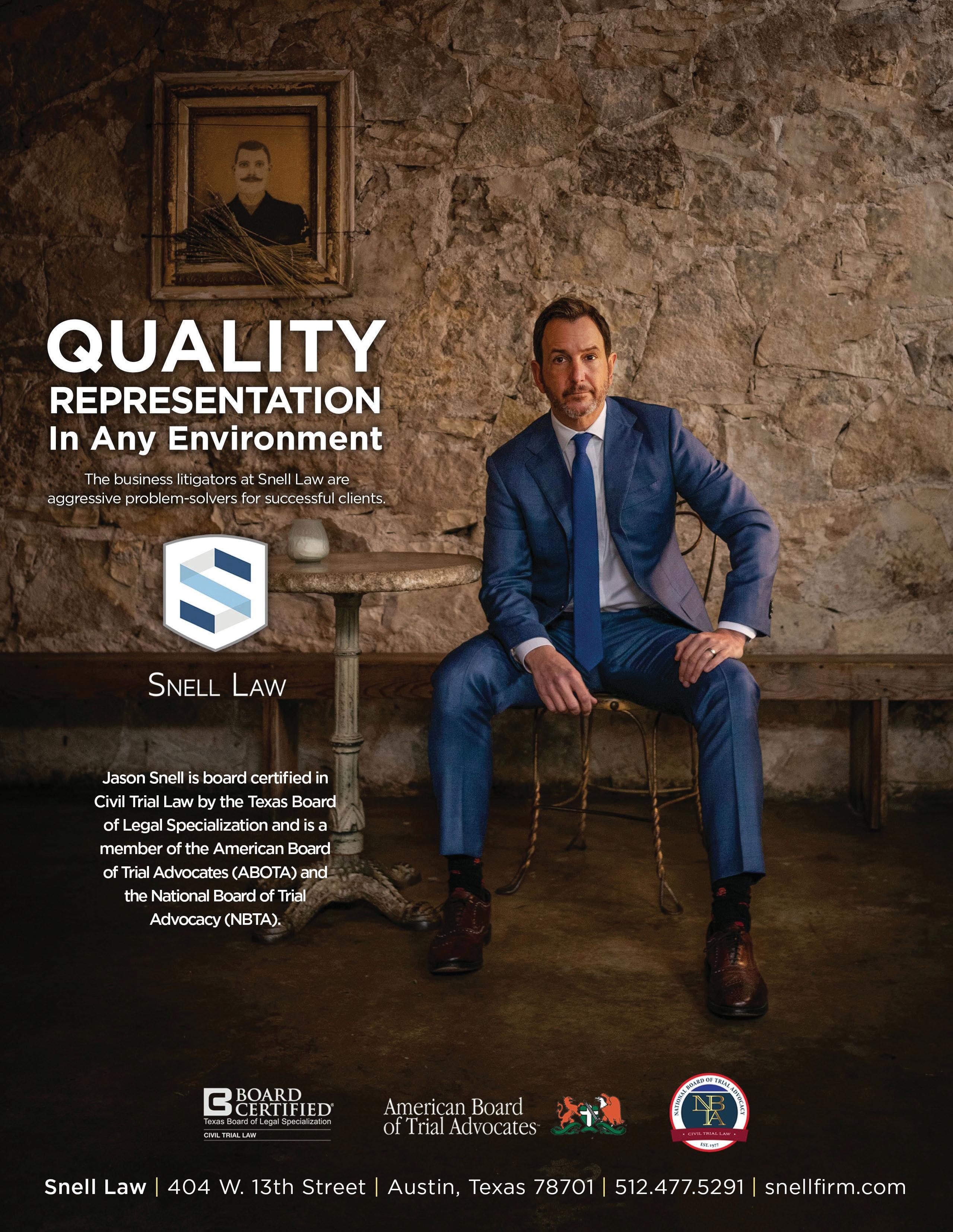
MARCH 2024 | AUSTINLAWYER 9
BRIEFS
New Members
The Austin Bar welcomes the following new members:
Patrick Abernethy
Arturo Alvarez
William Bator
Lyndsee Belliotti
Miguel Castillo
Sean Crider
Blake Ellis
Sheaffer Fennessey
Eric Fineman
Miguel Gutierrez
Lynn Harrell
Sonya Herrera
James Kachelmeyer
Valeska Leal
Molly Madsen
Creighton McMurray
Alecia (Mayberry) Mosadomi
Allison Neal
Ben Phillips
Mark Prince
Karina Rivera
Wajiha Rizvi
Jeremy Sylestine
San Juanita Veenstra
Nicole Warren

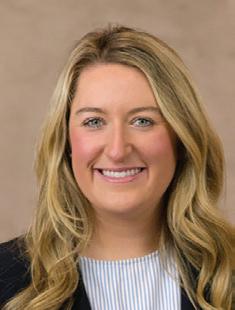

ON THE MOVE
Congratulations to Megan E. Donaldson, who has joined Butler Snow’s Tort, Transportation, and Specialized Litigation practice group in Austin. Donaldson earned her bachelor’s degree from Millsaps College and her J.D. from Mississippi College School of Law. During law school, she also participated in a summer clerkship for the Hon. Martin Hoffman of the 68th Civil District Court in Dallas County.
Congratulations to Andrew C. Schafer, who has joined Butler Snow’s Pharmaceutical, Medical Device, and Healthcare practice group in Austin. Schafer earned his B.B.A. from Texas State University and his J.D. from Pepperdine University, Caruso School of Law. After law school, he clerked for the Hon. Michael J. Truncale, U.S. District Court, Eastern District of Texas.
Congratulations to Jenny Roan Forgey, who has joined the Land Use practice group in Jackson Walker’s Austin office as senior counsel. Forgey’s background is focused on the development of residential and commercial mixed-use communities, as well as planning governance for master-planned communities. Forgey obtained her J.D. from Baylor and her B.S. from Georgetown.


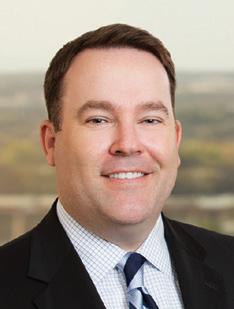
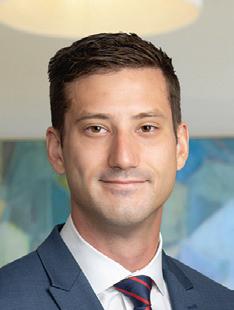

KUDOS
Congratulations to Michael L. Slack, managing partner of Slack Davis Sanger’s Austin office, who recently became board-certified in aviation law. Ladd C. Sanger, managing partner of the firm’s Dallas office, also became board-certified in aviation law. Slack and Sanger are now among only a handful of lawyers board-certified in this new area of specialty, which was just added by the Texas Board of Legal Specialization in 2023.
Congratulations to Butler Snow, which added 15 new attorneys across eight of its offices. These offices are in: Atlanta, Ga.; Austin; Baton Rouge, La.; Birmingham, Ala.; Charleston, S.C.; Memphis, Tenn.; Nashville, Tenn.; and Ridgeland, Miss. In total, Butler Snow has nearly 400 attorneys across 25 offices in the United States, Europe, and Asia.
Congratulations to Jackson Walker Austin partner Ali Abazari, who has been named a “leader in environmental law” by Lawdragon. Abazari’s practice focuses on environmental permitting and compliance assistance, defense of environmental enforcement actions, and environmental aspects of real estate and corporate transactions. He obtained his J.D. from Oklahoma City
University School of Law, his LL.M. from Tulane University Law School, and his B.A. from The University of Texas at Austin.
Congratulations to Jackson Walker Austin partner Leonard H. Dougal, who has been named a “leader in environmental law” by Lawdragon. Dougal represents clients in complex permitting and water supply matters, including tech companies, semiconductor manufacturers, data center owners, power generation companies, real estate developers, and special utility districts. He is also active in water quality and wetland issues. He obtained his J.D. and B.S. from UT.
Congratulations to Jackson Walker Austin partner Benjamin R. Rhem, who has been named a “leader in environmental law” by Lawdragon. In the firm’s environmental and legislative practice group, Rhem advises clients in the power generation, oil and gas, and mining industries regarding compliance with federal and state environmental laws. He obtained his J.D. from the University of Houston Law Center and his B.A. from the University of Richmond.

Robert L. McRae, Certified Mediator Registered Patent Attorney 8023 Vantage Drive, Ste 1500 San Antonio, Texas 78230 210-886-9500 Email: rmcrae@gunn-lee.com www.gunn-lee.com 10 AUSTINLAWYER | MARCH 2024
ABOVE (from left): Abazari, Donaldson, Dougal, Forgey, Rhem, Schafer, Slack.



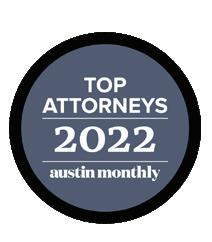
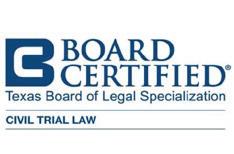

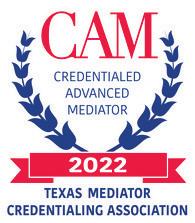
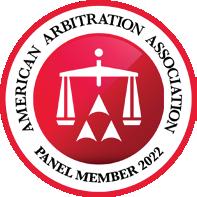
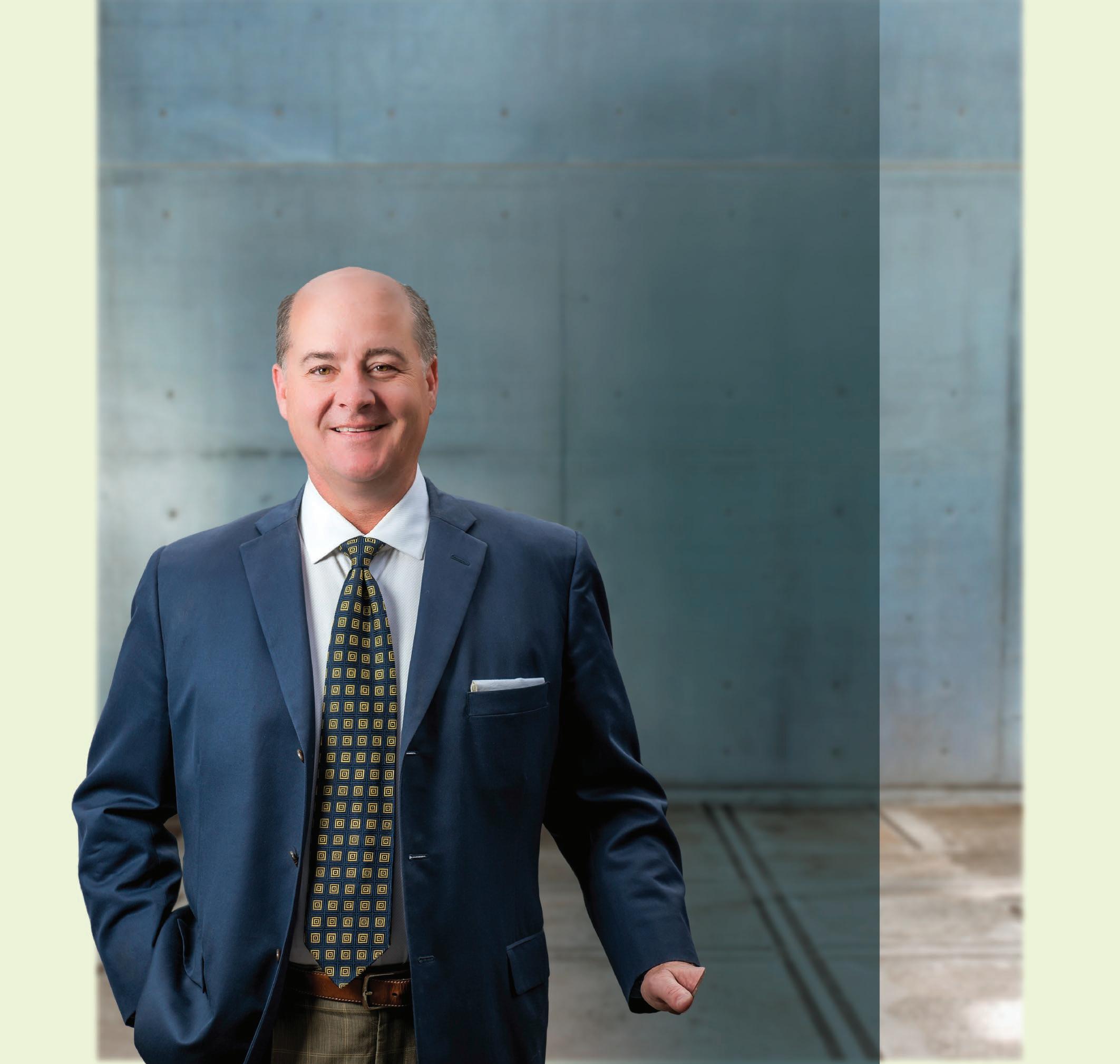

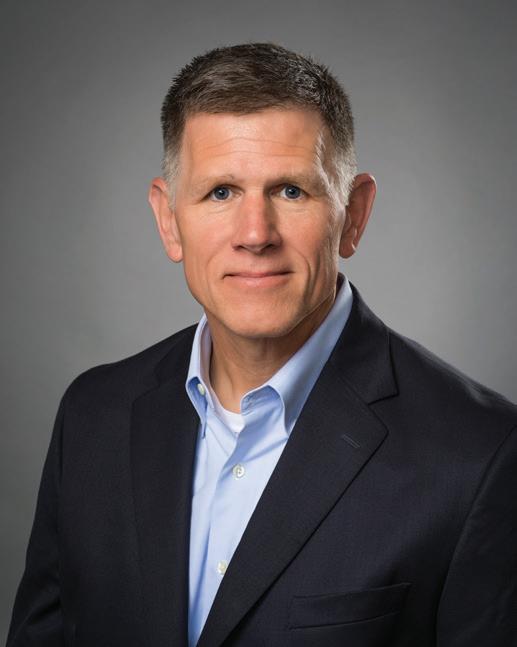
Let us help someone you know with their divorce. #CollaborativeDivorce #DivorceOnYourTerms 7500 Rialto Blvd, Bldg One, Suite 250, Austin, Texas 78735 whitten-law.com | info@whitten-law.com | (512) 478-1011 Adoption Grandparent or Non-parent Rights Collaborative Law High-Asset Divorce Modifications of Custody, Possession & Support He has been certified as a Family Law Specialist by the Texas Board of Legal Specialization. Specialization Mediation • Arbitration • Litigation Consulting Special Master/Judge Proceedings JEFF ROSE RoseResolutionGroup.com jeff@roseresolutiongroup.com 512.637.0931 Mediation. Arbitration. Resolution. Senior Judge Former District Judge and Chief Justice - Texas Third Court of Appeals MARCH 2024 | AUSTINLAWYER 11 T E XA S S UP E R LAWY E RS ® B U SI NESS L ITI G ATI O N 2 0 1 6–P R E S EN T THE BE S T LAWY ER S IN AMERI CA® C O MM E R CIA L L ITIG ATI O N 2 0 1 2 –P R E S EN T THE BE S T LAWY ER S I N AMERI CA® R E A L ES TATE LAW 2 0 1 2 –P R E S EN T AUSTIN MONTHLY TOP ATTORNEY 2 0 1 9 –P R E S EN T Armbrust & Brown, PLLC 100 CO N G R ESS AV E., SUI T E 1 3 0 0 • AU S T IN, T EX AS 78 70 1 5 12 -4 3 5-2 3 0 0 • FA X 512 -4 3 5-2 3 6 0 M H AWKI N S @A BAU S TI N CO M MARK L . H AW K I N S MEDIATION & ADR SERVICES
ASSOCIATION
AYLA GUEST COLUMN
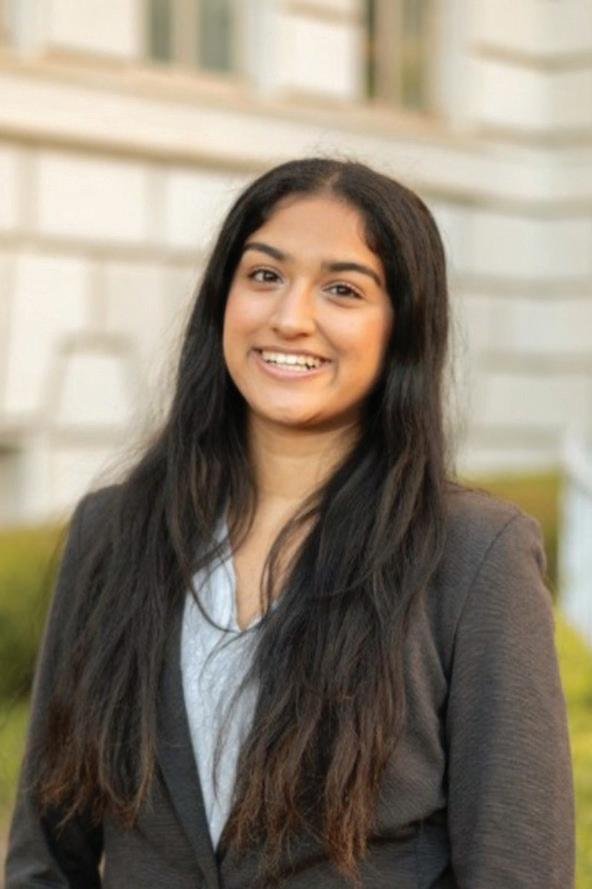
During the COVID-19 pandemic, a county jail outside of Amarillo sent a letter soliciting help. As a result of the new pandemic regulations, the entire prison library had been shut down, and the inmates no longer had access to books—one of their few solaces.
So the Amarillo County jail contacted a nonprofit organization started by Austin activists, the Inside Books Project, to possibly donate books to their facility.
“We sent them a couple of boxes of books,” said Scot Odierno, a staff member at Inside Books Project who has been with the nonprofit since its inception. “And then we sent them a couple more a month or two ago,” Odierno recalled. “And the guy who runs the library reached out and told us that they now have a full library of almost 1,000 books that we sent to them. That’s really cool. It’s really cool to see your work actually making an impact.”
This is not an isolated event. The Inside Books Project has an impressive record of bringing books to incarcerated individuals in Texas and across the country. The nonprofit’s work has impacted millions.
“Our primary mission is to send pretty books to people in prisons in Texas,” Odierno said. “But it goes beyond that because we can see the impact of books on people-—seeing them use books to educate themselves, inspire them,
BY ANIKHA GUDA, UT AUSTIN GOVERNMENT MAJOR
Books Behind Bars: The Inside Books Project’s Impact on the Incarcerated in America
and get a job. It’s empowering them in the right way.”
But getting to that rewarding outcome is a lengthy and detailed process. However, Odierno says the Inside Books Project has developed a consistent method to be successful.
“We get all sorts of books donated to our library collection from individuals and different groups so we use those to send,” Odierno said. “But a lot of the time, certain books and types of books are banned in prisons as per laws and regulations. Certain books make sense if they are promoting something, but sometimes it’s pretty ridiculous, to be honest. Computer manuals and computer training books have started getting banned because they think people would use them to hack into things. Some books are even thrown out once we send them if they think there is an unknown substance on the pages.”
On top of that, Inside Books receives at least 300 letters a week from inmates around the country requesting certain types of books. The nonprofit then curates a selection of books that best match the requests in the letters and ships them off with handwritten letters from the volunteers who selected the books.
“We get many different requests, but our most popular requests are books on religion, starting a business or certain skills, and ... pulp fiction and other fiction novels,” Odierno said.
During the pandemic, Inside Books lost many of its volunteers, resulting in backlogs. When COVID restrictions started loosening, the nonprofit soon got back on track.
“During COVID, when we
“[W]e can see the impact of books on people—seeing them use books to educate themselves, inspire them, and get a job. It’s empowering them in the right way.”
—Scot Odierno, Inside Books Project
didn’t have any volunteers, we were up to eight months behind on responding to letters,” Odierno said. “Now we’re at six weeks, so that means people will get their books within six weeks after writing us.”
Outside of their main mission, Inside Books seeks to take on bigger initiatives as well.
“Right now, we’re working on getting books into detention centers down at the border where there are about 10,000 people that are detained,” Odierno said. “And that’s one of the hardest places to get into. A lot of people
there need resources, especially legal resources, but they are also in need of ESL resources or books that could help them translate into their native language.”
For years, Inside Books has provided a valuable service in the rehabilitation of the incarcerated.
Even in this digital age, physical books remain an important resource for knowledge and self-improvement.
To get involved with the Inside Books Project and support the cause, visit https://insidebooksproject.org/ and sign up to volunteer. AL
UPCOMING EVENTS
THURSDAY, MARCH 21
Diversity Bar Mixer
Vince Young Steakhouse
301 San Jacinto Blvd.
SATURDAY, APRIL 6
Third Annual Crawfish Boil
Hilgers House
712 W. 16th St.
Noon – 4 p.m.
Sponsorships
AUSTIN YOUNG LAWYERS
ayla.org
5:30 – 7 p.m. Register at
12 AUSTINLAWYER | MARCH 2024
available Register at ayla.org
Introducing AYLA’s Freshquire Program
A Community for New Lawyers
The first years of legal practice can be intimidating and isolating, especially for lawyers in small/ solo firms or offices without other young lawyers. Imposter syndrome is extremely common, and AYLA wants to do something to help!
The Freshquire program was started thanks to a grant from the Texas Young Lawyers Association. The program provides a community for lawyers in their first three years of practice to build a network of comrades, to make entering the legal practice less intimidating.
Freshquire’s primary focus is to build a community of peers for newly licensed lawyers by offering a variety of unique opportunities without having to worry about the cost to attend.
The program will introduce young lawyers to leaders in the legal community who have a desire to mentor and see the next generation of attorneys thrive.
The program will also expose those lawyers to opportunities to become involved with AYLA, TYLA, the Austin Bar, the State Bar of Texas, and other affiliate legal organizations.
Past Freshquire events include:
• Nov. 9, 2023 – Freshquire kick-off event
• Dec. 13, 2023 – CLE at the Travis County Civil and Family Courts Facility
• Jan. 22, 2024 – New Year kickoff happy hour at The Cavalier
• Feb. 22, 2024 – CLE at the federal courthouse
Visit www.ayla.org to find out more about upcoming Freshquire events. AL
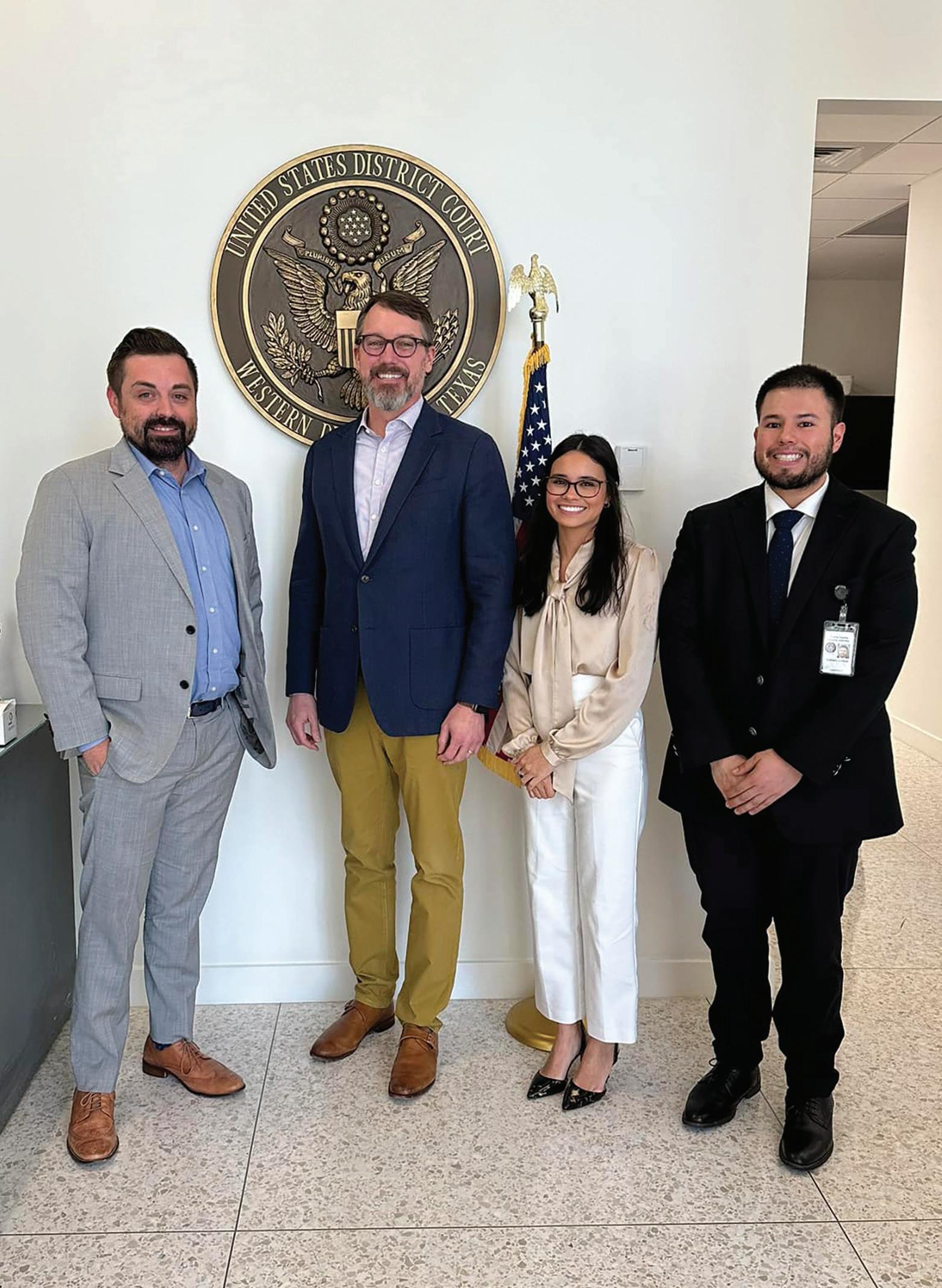


AUSTIN YOUNG LAWYERS ASSOCIATION
MARCH 2024 | AUSTINLAWYER 13
(L-R): Alex Conant, Judge Dustin Howell, Kelsey Abbey, and Rafael Haros talked about the difference between state and federal court practice during a Freshquire event on Feb. 22, 2024.
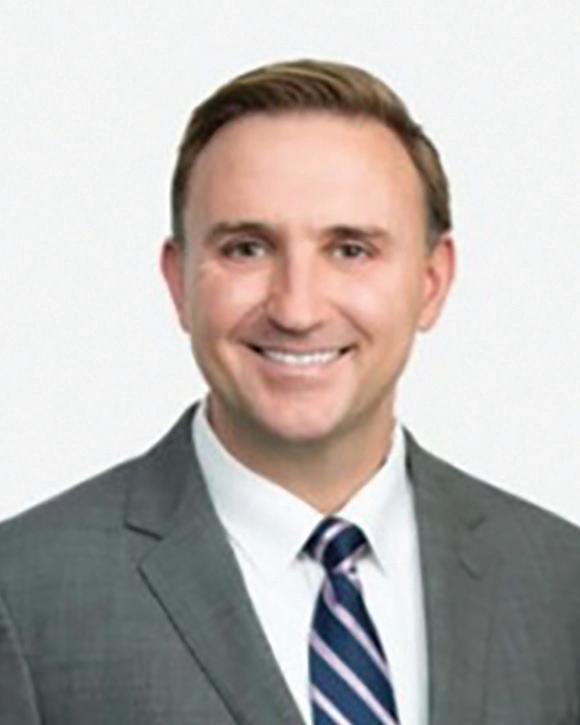
The following are summaries of opinions issued by the Fifth Circuit in January 2024. The summaries are overviews of particular aspects of the opinions; please review the entire opinions.
>TRADEMARK:
Antique Rolex watches with added diamonds, modified bezels, or replaced bands did not qualify for refurbishment exception to trademark infringement.
Rolex Watch USA, Inc. v. BeckerTime, L.L.C., No. 22-10866, 2024 WL 301768 (5th Cir. Jan. 26, 2024).
To recover on a trademark infringement claim under the Lanham Act, a plaintiff must first show that the mark is legally protectable and must then establish infringement by showing a likeli-
hood of confusion.
BeckerTime, the defendant here, sells primarily decades-old pre-owned watches containing Rolex branded parts. BeckerTime labels the watches “Genuine Rolex” even though the watches contain some Rolex and some non-Rolex parts. Rolex sued for infringement, and, after a bench trial, the district court found a likelihood of confusion and enjoined BeckerTime from using Rolex’s trademark in some, but not all, of the applications Rolex complained of.
The district court found that bezels, dials, and bands are integral parts of watches, and that labeling a watch with non-genuine bezels, diamonds added to dials, or replaced bands as a Rolex is likely to confuse customers. The district court enjoined BeckerTime from using the Rolex mark on watches with diamonds added to the dial or with new bands, but did not enjoin the use of the Rolex mark with non-genuine bezels.
BeckerTime and Rolex appealed. The Fifth Circuit largely affirmed but modified the injunction.
BeckerTime argued that the district court failed to properly apply a case called Champion, 1 in which the Supreme Court held that a defendant who collected plaintiff’s used sparkplugs, repaired and re-conditioned them, and resold them, did not need to remove plaintiff’s mark.
The Supreme Court reasoned that so long as the refurbisher clearly and distinctly sold the plugs as repaired or reconditioned, there was no likelihood of confusion—just as someone may sell a used car without removing
OFFICE SPACE FOR LEASE
the manufacturer’s mark. But if the reconditioning or repair would be so extensive or so basic that it would be a misnomer to call the article by its original name, even though the words “used” or “repaired” were added, infringement could still be found.
The Fifth Circuit held the district court properly applied Champion and that BeckerTime’s modifications fell within Champion’s “misnomer” exception. The Fifth Circuit relied on the district court’s factual findings that the watches BeckerTime sold were materially different than those sold by Rolex and so were of another make, and thus cannot properly be called genuine Rolex watches.
The court, however, modified the district court’s injunction to enjoin the use of the Rolex mark with non-genuine bezels, in order to match the district court’s factual findings on likelihood of confusion.
ADMINISTRATIVE LAW:
CFTC did not provide fair notice of its interpretation of “take the other side of trades” before bringing enforcement action against defendants.
Commodity Futures Trading Comm’n v. EOX Holdings, L.L.C., 90 F.4th 439 (5th Cir. 2024).
Defendant Gizienski is an energy broker employed by defendant EOX Holdings. Gizienski’s work focuses on brokering electrical energy futures block trades. Brokers work as middlemen to fulfill these futures transactions. They take bids or offers from traders for a contract at a desired price, quantity, and duration and then “blast” the details to other traders, asking if anyone wants to take the offer.
The CFTC sued Gizienski and EOX, claiming they violated a regulation preventing commodities traders from “taking the other side of orders” without clients’ consent.
It is undisputed that “taking the other side of orders” includes becoming an actual counterparty with a financial interest opposite the order. But Gizienski was not a counterparty—he made the brokered trades on behalf of another.
The CFTC argued that “taking the other side of orders” included merely making the decision to trade and so Gizienski’s use of his client’s account qualified.
In crafting the jury instruction, the district court sided with the CFTC. The jury found defendants liable.
The Fifth Circuit reversed. Applying its long-standing rule that “a regulation cannot be construed to mean what an agency intended but did not adequately express,” the court held that the CFTC did not provide fair notice: “Taking the other side of orders” did not have an unmistakable meaning, and the regulation had existed for nearly 40 years before the CFTC had ever enforced it in this fashion or otherwise made the public aware of its interpretation.
The court rejected the CFTC’s argument that its interpretation tracked its publicized prohibition on “bucketing.” Among other reasoning, the court pointed out that the CFTC’s own online glossary defined “bucketing” as including a link to the broker’s own account. AL
ENDNOTE
1. Champion Spark Plug Co. v. Sanders, 331 U.S. 125 (1947), available at https://supreme.justia.com/cases/ federal/us/331/125/.

Austin-NW Hills/Spicewood Canyon area with canyon views. The second floor encompasses seven offices with exterior glass walls, two interior offices, and nine interior cubicle workstations. Amenities include a kitchen, private bathroom with shower, internet/Wi-Fi, large conference room, ample parking, and Avaya phones with direct inward dial numbers. Access to shared conference rooms, copy center (for expense costs), and receptionist/ lobby area. Cost: $1500 per exterior office, $900 per interior office and $300 per cubicle. Contact Frances at fruby@bajb.com
For a time, one of Gizienski’s clients granted Gizienski a power of attorney allowing Gizienski to act on his behalf and to enter into block trade transactions at Gizienski’s discretion. Thus, Gizienski could use that account to accept offers he took from traders. EOX obtained approval for this relationship from the futures exchange and the compliance departments of two firms that clear trades.
Jason LaFond is a board-certified appellate lawyer with significant experience before the Fifth Circuit. He is a Senior Counsel at Yetter Coleman, LLP.
14 AUSTINLAWYER | MARCH 2024 FEDERAL CIVIL COURT UPDATE
THIRD COURT OF APPEALS

Laurie Ratliff is a former staff attorney for the Third Court of Appeals. She is board-certified in civil appellate law by the Texas Board of Legal Specialization and owner of Laurie Ratliff LLC.
The following are summaries of selected civil opinions issued by the Third Court of Appeals during January 2024. The summaries are overviews of particular aspects of the opinions; please review the entire opinions. Subsequent histories are current as of Feb. 7, 2024.
>ORIGINAL PROCEEDING:
Court grants relief where trial court denied discovery of plaintiff’s medical history.
In re Westside Roofing, LLC, No. 03-23-00219-CV (Tex. App.—Austin Jan. 5, 2024, orig. proceeding) (mem. op.).
In a personal-injury lawsuit following a traffic collision, Westside
sought information from plaintiff’s healthcare providers for a six-year period preceding the accident to defend the damages claim. The trial court granted plaintiff’s motion to quash. The court of appeals noted that mandamus is proper to correct an improper denial of discovery that prevents a party from developing a defense that goes to the heart of the case. The requested discovery related to whether plaintiff’s claimed injuries may have resulted from a pre-existing condition. Plaintiff’s deposition revealed that he had a history of neck and back conditions. Thus, the requested discovery may reveal details of plaintiff’s pre-accident condition that could affect a jury’s decision about the causal link between his injuries and the accident. The court granted mandamus relief.
HEALTHCARE LIABILITY:
Court reverses trial court’s exclusion of expert’s opinion.
Williams v. CTRH, L.L.C., No. 03-22-00465-CV (Tex. App.—Austin Jan. 5, 2024, no pet. h.) (mem. op.).
Williams sued CTRH alleging its failure to monitor her mother’s blood-sugar levels resulted in hypoglycemia that caused cardiac arrest and death. CTRH sought to exclude Williams’ expert because he relied on a fact that varied from the facts in the record, specifically, whether the low blood-sugar levels of 27 and 20 were taken before she died. The trial court excluded Williams’ expert and granted summary judgment for
CTRH. The mother’s medical records included a physician’s discharge summary that stated mother was found unresponsive with a pulse with blood sugar measured “in the mid 20s” and “[mother] lost her pulse and CPR was initiated.” According to the court of appeals, this evidence supported the expert’s assumption that mother was alive when the blood sugar readings were taken. Thus, the trial court erred in excluding the expert’s opinion. The court reversed and remanded.
ADMINISTRATIVE LAW: Court holds statute allows employment-discrimination complainant option to amend or to file a new complaint.
Tex. Health & Human Servs. Comm’n v. Cooper, No. 03-2200421-CV (Tex. App.—Austin Jan. 19, 2024, no pet. h.).
After Texas Health & Human Services (THHS) terminated her employment in January 2020, Cooper filed an unverified administrative complaint with TWC alleging discrimination on Jan. 22. On March 3, Cooper’s attorney filed a second complaint with the EEOC that specifically stated it was a “new charge.” THHS challenged Cooper’s March 2, 2022 lawsuit as untimely. The trial court denied the plea. THHS argued the statute requires amendment of an original non-compliant complaint, which then relates back to the date of the original complaint. The court of appeals concluded that Labor Code section 21.201(e)’s “complaint may
be amended” language gives complainants the option to amend a non-compliant complaint or to file a new complaint that stands on its own. The court held that limitations ran from the later-filed complaint and affirmed.
ORIGINAL PROCEEDING:
Court finds plaintiff presumptively abandoned claims.
In re American Contractors Indem. Co., No. 03-23-00731-CV (Tex. App.—Austin Jan. 31, 2024, orig. proceeding) (mem. op.).
In December 2008, successor guardian filed a breach-of-fiduciary-duty lawsuit against prior guardian and her bonding company. Successor guardian sought business records in 2010 and filed annual accountings but took no other action in the lawsuit. In December 2022, bonding company sought dismissal for want of prosecution. The probate court denied the motion. According to the court of appeals, with a delay of unreasonable duration without sufficient explanation, there is a conclusive presumption of abandonment of plaintiff’s claims. The court concluded that successor guardian’s annual accountings did not amount to prosecution of the fiduciary lawsuit. Accordingly, the court held that successor guardian presumptively abandoned his claims. The court granted mandamus relief. AL

MARCH 2024 | AUSTINLAWYER 15
CIVIL UPDATE
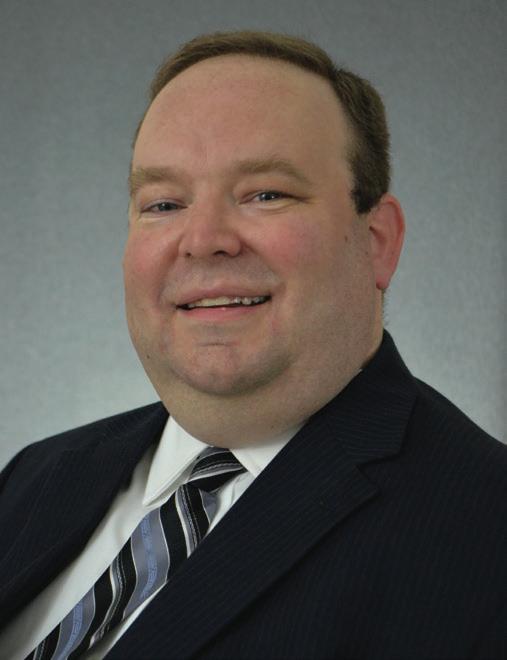
Zak Hall is a staff attorney for the Third Court of Appeals. The summaries that follow represent the views of the author alone and do not reflect the views of the court or any of the individual Justices on the court.
The following are summaries of selected criminal opinions issued by the Third Court of Appeals from August 2023. The summaries are overviews of particular aspects of the opinions; please review the entire opinions. The subsequent history is current as of Feb. 1, 2024.
>DEFENSIVE ISSUES—
MISTAKE OF FACT: In prosecution for failure to stop and render aid, defendant was entitled to jury instruction on mistake-of-fact defense.
Holloway v. State, No. 03-2200268-CR (Tex. App.—Austin Aug. 4, 2023, pet. ref’d) (mem. op., not
designated for publication).
Holloway was charged with and convicted of the offenses of felony murder, failure to stop and render aid, intoxication manslaughter, and aggravated assault. The victims of the offenses were Holloway’s girlfriend, Marta, and her adult son, Danny. The evidence at trial showed that Danny confronted Holloway in a parking lot. Holloway was inside his truck with Marta, and Danny was standing outside the truck. At some point during the incident, Marta got out of the truck, and Holloway, who was intoxicated at the time, hit Danny and then Marta with his vehicle. Both victims died from the injuries they sustained.
One of Holloway’s issues on appeal was that the trial court erred in refusing his request for jury instructions for mistake of fact for the failure-to-stop-and-render-aid count. The appellate court agreed. “It is a defense to prosecution that the actor through mistake formed a reasonable belief about a matter of fact if his mistaken belief negated the kind of culpability required for commission of the offense,” reads Tex. Penal Code section 8.02(a). The court observed that the question here was whether there was evidence that the defendant made a reasonable mistake in thinking that no one involved in the accident was injured or killed or in thinking that the accident was not reasonably likely to have injured or killed another person. The court concluded that there was. The state charged Holloway with failure to stop and render aid to Marta, and
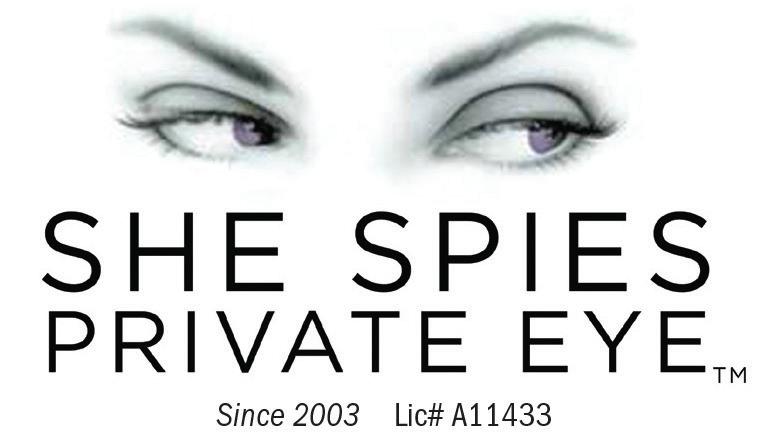

“Information is power, the not knowing is devastating.”
Holloway testified that he did not know where Marta was after she got out of the truck, did not see her in the area, thought she likely left to get help, and did not hear anything indicating that his truck hit anyone other than Danny.
The court further concluded that the omission of the instruction from the charge harmed Holloway because the jury was not permitted to consider a valid defense to the charge. Accordingly, the court reversed the trial court’s judgment of conviction for failure to stop and render aid and remanded the case to the trial court for further proceedings regarding that charge.
DEFENSIVE ISSUES— PRESUMPTION OF REASONABLENESS IN SELF-DEFENSE CASES:
In prosecution for murder, defendant was not entitled to jury instruction that his belief regarding the immediate necessity of using deadly force was presumed to be reasonable.
Baez v. State, No. 03-22-00506-CR (Tex. App.—Austin Aug. 25, 2023, no pet.) (mem. op., not designated for publication).
Baez was convicted of murder for shooting the victim multiple times with a firearm. On appeal, Baez argued that the trial court erred in failing to give an instruction sua sponte regarding the presumption of reasonableness under section 9.32 of the Texas Penal Code. The trial court instructed the jury on the use of deadly force in self-defense, i.e., that a person is justified in using deadly force against another if
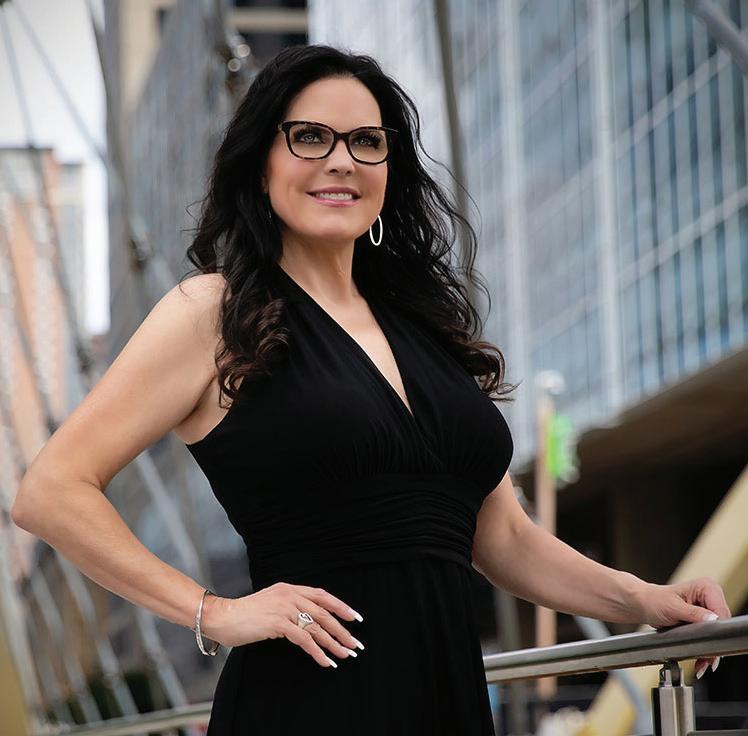
the actor is justified in using force, and “when and to the degree he reasonably believes the deadly force is immediately necessary to protect himself against the other’s use or attempted use of unlawful deadly force, or to prevent the other’s imminent commission of murder.”
The trial court also defined “reasonable belief” to mean “a belief that would be held by an ordinary and prudent person in the same circumstances as the defendant.” However, the trial court did not include a presumption-of-reasonableness instruction, i.e., that the actor’s belief that deadly force against another was immediately necessary is presumed to be reasonable.
The appellate court concluded that such an instruction was not required in this case. Among the three conditions for the presumption of reasonableness to apply, the actor must not have been “otherwise engaged in criminal activity ... at the time the force was used.”
The evidence at trial conclusively established that Baez was “otherwise engaged in criminal activity” when the shooting occurred because the evidence established that at the time and place of the shooting, Baez was committing the offense of unlawful possession of a firearm by a felon. Thus, “there was not sufficient evidence of facts that would give rise to the presumption of reasonableness,” and for that reason, the trial court did not err in omitting a presumption-of-reasonableness instruction. AL

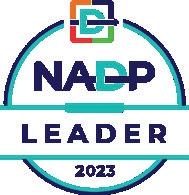
Divorce and Child Custody Surveillance ~ Undercover Background Checks Computer & Phone Forensics Corporate Investigations Expert Testimony and more Offices in Austin, Round Rock, & Dallas STRICTLY CONFIDENTIAL Featured in Forbes Magazine Anji Maddox 16 AUSTINLAWYER | MARCH 2024 THIRD COURT OF APPEALS CRIMINAL UPDATE

Board Certified by the Texas Board of Legal Specialization in Personal Injury Law, attorneys Paula Sweeney and John Jose, along with Class Action attorney John Davis, of the law firm Slack Davis Sanger, specialize in navigating and winning challenging medical malpractice cases. By leveraging three decades of experience, an in-house nurse paralegal and renowned medical experts, we have the technical and legal expertise to outwork, out-think, and out-resource any opposition. Complexity is our specialty. Austin | Dallas | Fort Worth | SLACKDAVIS.COM Surgical & Prescription Errors | Misdiagnosis | Birth Injuries | Failure to Treat
Decriminalizing Mental Health in Travis County: Part 7
This is the final installment in a series of articles about the Travis County Forensic Mental Health Project.
In its Recommendation #3, The Travis County Forensic Mental Health Project compiled a list of what it termed “quick wins”—recommendations that can be implemented relatively quickly with low costs, one-time costs, or low ongoing costs.1
Quick Wins – Low/No Cost
The first of these quick wins is to create training on Article 16.22 of the Texas Code of Criminal Procedure.
“The 16.22 Mental Health Evaluation can be requested by the magistrate judge prior to magistration and provides the judge with an overview of an individual’s mental health status, needs, and potential community programs and services they could enroll in if allowed to bond out of jail,” the document says.
Though the Texas Judicial Commission on Mental Health recently released the Texas CCP Art. 16.22 Guide – January 2023,2 “there is no official integrated training on how or when to request a 16.22, how to complete it, how recommendations in it could impact the outcome of release for an individual, and how a judge or attorney can read and/ or interpret a 16.22 aimed at both legal and clinical professionals.”
The Project recommends developing 16.22 training in partnership with the Behavioral Health Care Judicial Advisory Committee, which “already has the appropriate legal and clinical stakeholders available to create a training program that could be implemented for all magistrate judges, and legal and clinical professionals who interact with the 16.22 evaluation.”
The only cost associated with this recommendation is the committee’s time, the document says.
“Ideally, this training program would be in place when the counsel at first appearance (“CAFA,”

see article 63) pilot is reinstated and offered to both prosecuting and defense legal representatives, leading to synergistic improvement in the process,” the document says.
Another low-cost quick win is establishing data use agreements (“DUAs”) for sharing data between courts, jails, law enforcement, Integral Care, and other mental health stakeholders in the county. DUAs are “highly important to reduce time between sharing among county and other entities’ data for analysis, system improvements, and continuity of care,” the document says.
The major cost associated with this recommendation is an investment of time, while there are minimal ongoing costs once the DUAs are in place, the document says.
Another quick win is consolidation of probable cause affidavits (“PCAs”).
“Currently there are several different PCAs that circulate throughout the different jurisdictions located within Travis County,” the document says.
The Project recommends standardizing one PCA to be used throughout the county, developed cooperatively by representatives from local jurisdictions and Central Booking.
“This could be completed in a short time frame,” the document says.
The Project also recommends creating protocols for how individ-
uals flow through mental health evaluation in jail.
“When an individual enters Central Booking, several assessments and evaluations take place almost immediately,” the document says. “Often, individuals are agitated, angry, anxious, or exhibiting other behaviors they normally would not exhibit due to the stressful and sometimes traumatic experience of being arrested and taken to jail; consequently, incomplete, or inaccurate information are collected, especially regarding mental health needs.”
The Travis County Sheriff’s Office (“TCSO”) attempts to re-evaluate individuals, but there is no standardized process for doing so, “which means their initial screening may be used while making decisions such as bond or accepting charges,” the document says. “To obtain the most accurate information and provide the best care for individuals,” TCSO mental health professionals should convene with legal professionals to standardize re-evaluation methods. The cost is an investment of time, the document says.
The Project also recommends all county employees and contractors who interact with the criminal legal system take Integral Care’s free Mental Health First Aid training.
“Time costs to consider are the coordination for training sessions and employee time from regular duties to attend trainings,” the
document says.
The Project also recommends creating an evaluation referral system for individuals with brainhealth conditions. It defines brain-health conditions, such as traumatic brain injuries, dementia, and Alzheimer’s, as more complex than mental health conditions, such as substance abuse disorders. While jails and courts currently can order in-depth evaluations of those suspected to have severe brain-health conditions, “a more robust referral process for an in-depth evaluation would be beneficial,” the document says. Such in-depth evaluations would include MRIs, CAT scans, and neuropsychological testing. Such an evaluation referral system could be handled by email.
The Project also recommends implementing in-jail guardianship screenings.
“Currently the jail does not screen for guardianship needs,” the document says.
Adding guardianship screeners to the intake process would add minimal time and will allow the county to collect more data on the needs of the individual.
Quick Wins – One-Time Costs/Minor Ongoing Costs
The Project recommends that pretrial services utilize the Coordinated Assessment tool managed by Austin’s Ending Community Homelessness Coalition (“ECHO”). According to ECHO,
18 AUSTINLAWYER | MARCH 2024
this tool uses a “vulnerability index to prioritize individuals and families most in need of housing services ... . Once assessed, households are referred to the programs they qualify for.”
“Pretrial services can explore utilizing the Coordinated Assessment to ensure someone is either on the housing need list or … have them added,” the document says. “Doing so will add a short amount of time to the pretrial services process, and cost is tied to the time of the staff completing this effort.”
The Project also recommends convening stakeholders to develop boarding home regulations and licensing. (See article 4.5)
Based on a 2008 report,6 Texas boarding homes were found to be “unacceptably dangerous … unsanitary … and negligent … . In addition, financial abuse was observed as several owners require residents to appoint the boarding home as their representative payee for any federal or state financial support,” the document says.
In order to provide a safe environment for individuals in boarding homes, the Project recommends a group of Travis County stakeholders convene to research existing counties that have implemented boarding home licensure and regulation improvements and provide recommendations to the Commissioners Court.
“Better regulation could have substantial impact on residents of the boarding homes and ensure their safety and wellbeing—physically and financially,” the document says, adding the costs associated with this recommendation would “potentially include a onetime consultant or contractor fee, as well as employee time.”
Major Investment
The Project’s Recommendation #4, increasing certified peer support specialists in the county,7 would be a major investment, though it could be implemented faster than the other priority recommendations, the document says.
“The highest priority recommendations will have the largest positive impact for individuals within the intersection of the criminal legal and mental health systems and the community,” the document says. “Regardless which recommendations are cho-
sen to implement, we recommend that the Court assign an independent team for project management, guidance, and implementation to ensure efforts continue for the safety of the community and the care for the individuals in this complex revolving door.”
Shortly after these recommendations were delivered to the Travis County commissioners, a mental health diversion program was approved. In April 2023, the county set aside $6 million for the center.8
A pilot program, a collaboration of Travis County, the City of Austin, Integral Care, and Central Health, is expected to be up
and running by May 2024, Travis County Judge Andy Brown told KXAN. Plans for a permanent diversion center are also being developed, but could take up to five years to come to fruition.
In total, the pilot mental health diversion program is expected to cost $23.7 million over three years, with city, county, and possibly state funding, as well as funding from Central Health and Integral Care. AL
ENDNOTES
1 https://civicclerk.blob.core.windows. net/stream/TRAVISCOTX/956f1347 -2fce-43cb-b1ee-b a892db89ae7.p df?sv=2021-10-04 &st=2023-03-14 T16%3A15%3A50Z&se=2024-03 14T16%3A20%3A50Z&sr=b&sp=r
&sig=BJ3KDFoP1rlWOT8EK7VSMr %2 ForkqNjA%2FCesBejIm06Y%3D.
2 https://texasjcmh.gov/media/fpeltz22/16-22-guide-final-for-web.pdf.
3 Austin Lawyer, Feb. 2024, p. 22, “Decriminalizing Mental Health in Travis County: Part 6.”
4 https://www.austinecho.org/leading-system-change/coordinated-entry/.
5 Austin Lawyer, Nov. 2023, p. 20, “Decriminalizing Mental Health in Travis County: Part 4.”
6 http://boardinghome.org/wp-content/uploads/2013/12/BH-Boarding-Houses-Report-01-09.pdf.
7 Austin Lawyer, Dec. 2023/Jan. 2024, p. 20, “Decriminalizing Mental Health in Travis County: Part 5.”
8 https://www.kxan.com/news/local/ travis-county/travis-county-commissioners-to-vote-on-future-of-mental-health-diversion-center/

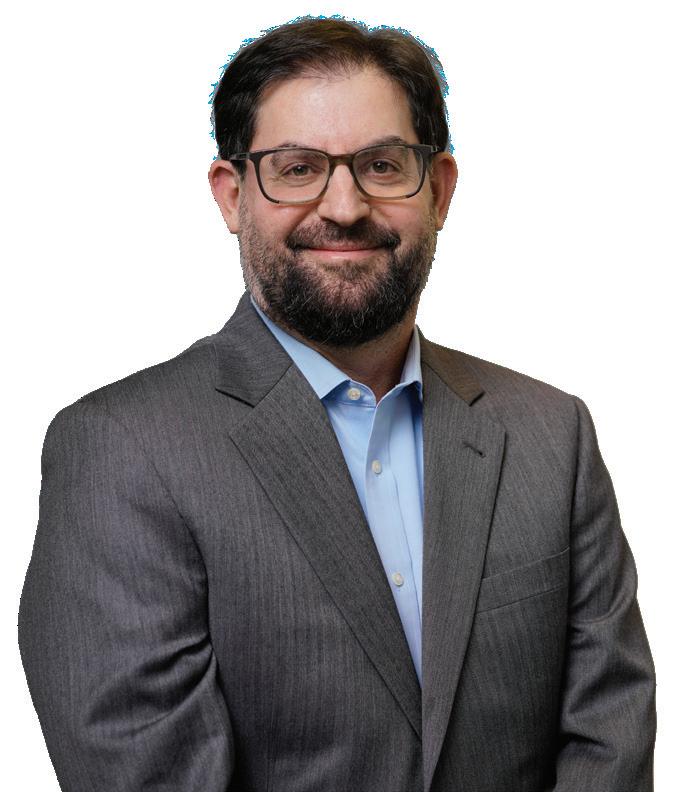


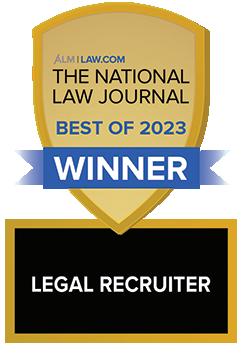
MARCH 2024 | AUSTINLAWYER 19
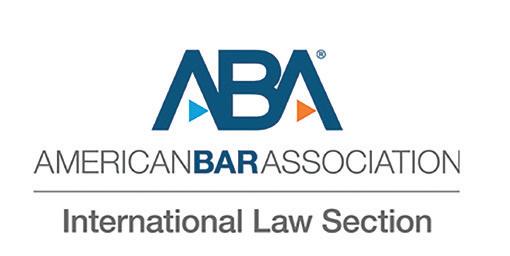
The American Bar Association (ABA) has launched a pilot program to help Afghan judges, lawyers, and prosecutors resume their careers in America after fleeing Afghanistan during or after the August 2021 withdrawal of U.S. troops and the Taliban’s return to power.
The ABA Afghan Legal Professionals Scholarship & Mentoring Pilot Program has partnered with 18 law schools in the U.S. to provide 24 full-tuition scholarships to Afghan mentee fellows. By meeting certain criteria, mentee fellows can also receive $25,000 stipends to assist with rent, food, and other necessities.
These mentee fellows will receive peer-to-peer mentoring from pilot program volunteers and complete a one-year master of laws (LL.M.) program. This will allow the mentee fellows to take a U.S.

American Bar Association Launches Pilot Program to Help Afghan Legal Professionals
bar exam and find employment within the U.S. legal system.
“We have a moral imperative to assist Afghan legal professionals who sought to uphold democracy and the rule of law alongside the U.S.,” said Mike Byowitz, chair of the ABA International Law Section’s Afghan Legal Professionals Resettlement Task Force, which runs the pilot program.
Other services the pilot program will provide include legal English language assessments; English and legal English language support; online legal research training with LexisNexis; and networking opportunities for mentors and mentee fellows.
The pilot program is intended to run for one year to provide a proof of concept for a broader scholarship and mentoring program. The future goal is to provide scholarships and mentoring to more Afghan legal profession-
Afghan mentee fellows will receive peerto-peer mentoring from pilot program volunteers and complete a one-year master of laws (LL.M.) program, allowing them to take a U.S. bar exam and find employment within the U.S. legal system.
als and to serve as a template for similar programs for legal professionals from other countries.
Donations to the pilot program are administered by the ABA’s Fund for Justice and Education (FJE), a 501(c)(3) organization. Donations can be made at ambar.org/donateITL.
The task force is also seeking new members to serve in a variety of capacities. The task force meets once every other week and assists in contacting law schools to seek scholarships and placements for

Afghan candidates; developing relationships with potential donors; developing policies and procedures for the task force and mentoring program; creating content to assist mentee fellows; connecting with potential scholarship candidates; and identifying and exploring other resources to aid in the growth of the candidates as future lawyers in the United States.
If you are interested in serving on the task force, contact Ceilanne Libber of the FJE at ceilanne.libber@americanbar.org. AL
20 AUSTINLAWYER | MARCH 2024 LAKESIDE MEDIATION CENTER When experience matters. Celebrating its 23rd year, Lakeside is proud to welcome Jeff Jury and Tracy Allen, both past presidents of the International Academy of Mediators with decades of experience mediating and arbitrating cases. Collectively, Lakeside mediators have presided over 15,000 mediations and hundreds of arbitrations. Schedule a mediation online today! 3825 Lake Austin Blvd., Suite 403 Austin, TX 78703 | www.lakesidemediation.com adr@lakesidemediation.com | (512)477-9300


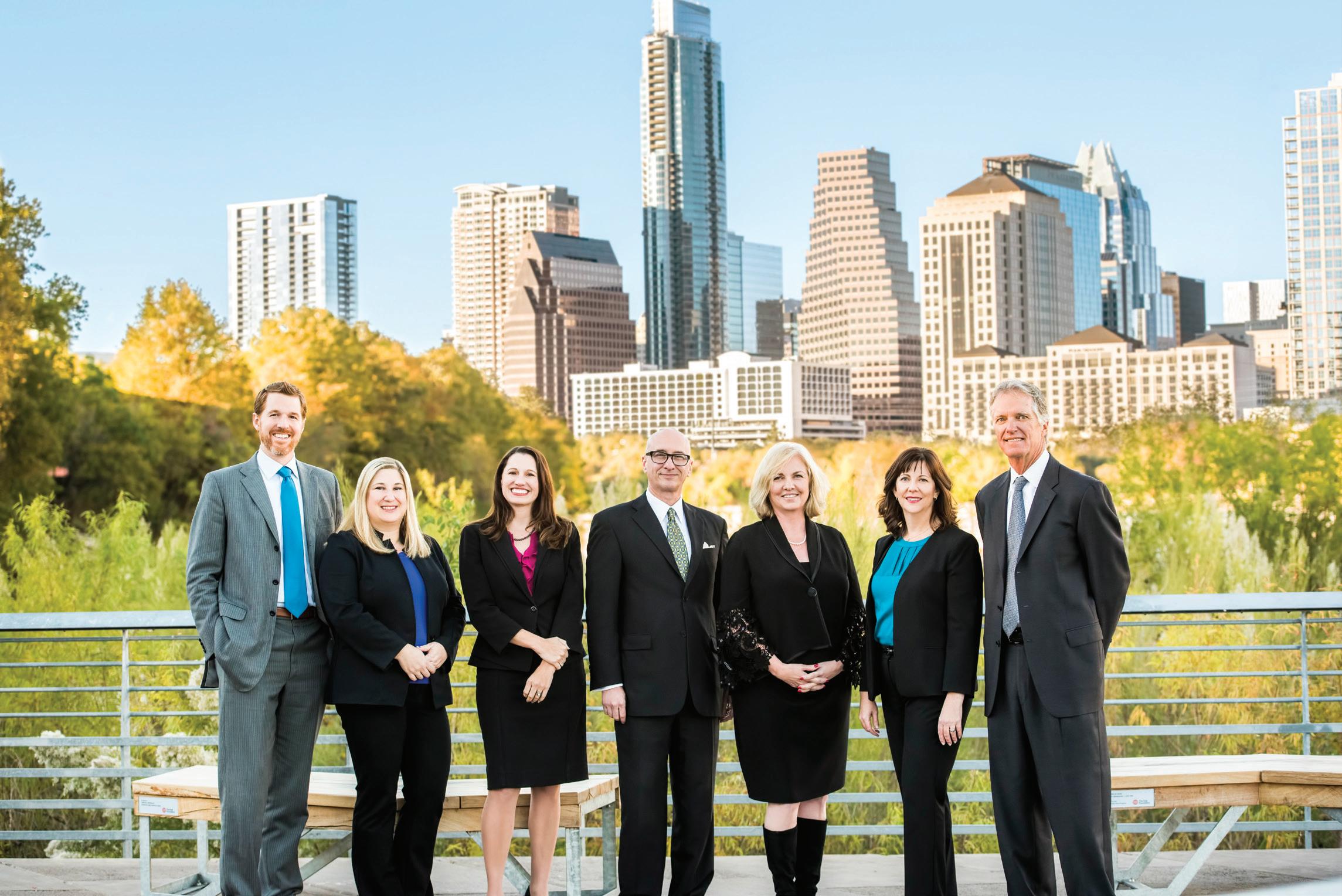
partners:
associate attorneys:
Arielle Rosvall, Coleen Kinsler
Me di a tor, Arbi t ra tor, Spe ci a l J udge a nd Li t i ga t i on Consult a nt
MARCH 2024 | AUSTINLAWYER 21
Senior District Judge Stephen Yelenosky
New Law Aims to Improve Access to AP Math Courses for Students of Color in Texas
BY JILLIAN GARZA, AUSTIN BAR ASSOCIATION STAFF
In an effort to close the equity gap among students in Texas K-12 schools, a new law has been rolling out statewide since May 2023 that will help more Black and Latino students enroll in advanced-placement (AP) math classes.
The “opt-in” law will automatically enroll high-testing students in advanced math classes, where they will have the opportunity to opt out if needed or wanted, instead of having to be placed based on parent intervention or teacher recommendation. This is an effort to combat implicit biases educators may have, as well as help parents who may not even know these classes are an option for their children.
The law arises from data showing stark differences between the amount of white and Asian students versus the amount of Black and Latino students taking honors or advanced math courses, an issue that was especially prevalent among Central Texas school districts.1 In fact, the “opt-in” model was based on a policy created by seven school districts in Central Texas.
The gap was revealed through a 2018 study conducted by the U.S. Department of Education’s Office of Civil Rights, which also revealed that, when compared to white and Asian students, Black and Latino students were less likely to attend schools that offered advanced math classes.2
More research by the E3 Alliance, an Austin-based education collaborative, showed that students of color were “routinely left out” of these advanced math classes, whether or not they earned high test scores.3
These disparities were reflected through standardized testing

results and continued to be seen throughout the STEM fields. The average math SAT scores for Black and Latino students were significantly lower than their white and Asian peers, who also overrepresented college graduates earning STEM-related degrees.
Moreover, Latino workers only represented eight percent of the STEM workforce, while Black workers represented nine percent. White workers make up two-thirds of the field, while Asian workers make up 13 percent compared to their six percent of total employment across all occupations.4
Since the law has gone into effect, the enrollment of Black and Latino students in advanced math classes has skyrocketed. In Dallas, school districts saw Latino enrollment shoot up to 60 percent and Black enrollment rose to 43 percent.
Still, there is worry that students of color will continue to be left out of advanced classes for economic reasons. While there is no charge to enroll in an AP course, the average AP test costs $97. Moreover, most courses require textbooks that cost $60 on average.
Since the law has gone into effect, the enrollment of Black and Latino students in advanced math classes has skyrocketed. In Dallas, school districts saw Latino enrollment shoot up to 60 percent and Black enrollment rose to 43 percent.
AP classes are often needed for many students who aspire to go to college, as the classes are often weighted higher in a student’s GPA. This results in higher GPAs and class ranks, which can be the make-or-break of a student’s college application. AL
ENDNOTES
1 https://www.kxan.com/news/ new-texas-law-aims-to-give-blacklatino-students-better-accessto-advanced-math-classes/#:~:text=News-,New%20Texas%20 law%20aims%20to%20give%20 Black%2C%20Latino%20students,access%20to%20advanced%20 math%20classes&text=AUSTIN%20
(KXAN)%20%E2%80%94%20
There’s%20a,Eliminating%20the%20 equity%20gap.
2 https://nces.ed.gov/ pubs2019/2019038.pdf.
3 https://apnews.com/article/schooladvanced-math-track-a3daa1e0f82add8f1035e1dd1e4147ad.
4 https://www.pewresearch.org/ science/2021/04/01/stem-jobssee-uneven-progress-in-increasinggender-racial-and-ethnic-diversity/.
22 AUSTINLAWYER | MARCH 2024
Jillian Garza is an intern at the Austin Bar Association.











Sponsored Content MARCH 2024 | AUSTINLAWYER 23
Austin Bar Judicial Preference Poll Results
In a private preference poll, members of the Austin Bar rated the candidates in Travis County’s three contested judicial elections.
The three candidates for the 353rd Judicial District judgeship, the two candidates for Travis County District Attorney, and the three candidates for Justice of the Peace Precinct 5 will appear on the ballot in the March primary.
The purpose of the preference poll is to give the general public an opportunity to see how local attorneys evaluate their colleagues in the legal community.
The results are strictly the opinions of the individual attorneys participating in the poll and are not intended as an endorsement of any candidate by the Austin Bar Association or any affiliated organization.
For each race, Austin Bar members were asked to indicate which candidate they believed was best qualified to serve in the position
for which he or she was running. Members cast their votes through BallotBox, an online polling system. They did not have to cast a vote in every race. Of the 2,663 eligible voters, 482, or 18.1 percent, participated in the poll.
The results are as follows:
District Judge, 353rd Judicial District:
Susana Castillo - 88 votes
Madeleine Connor - 27 votes
Sherine Thomas - 299 votes
Not answered - 68 votes
District Attorney:
José Garza - 179 votes
Jeremy Sylestine - 201 votes
Not answered - 102 votes
Justice of the Peace, Precinct 5:
Ornela DeSeta - 58 votes
Tanisa Jeffers - 107 votes
Rick “Rico” Olivo - 108 votes
Not answered - 209 votes
The Austin Bar Association is

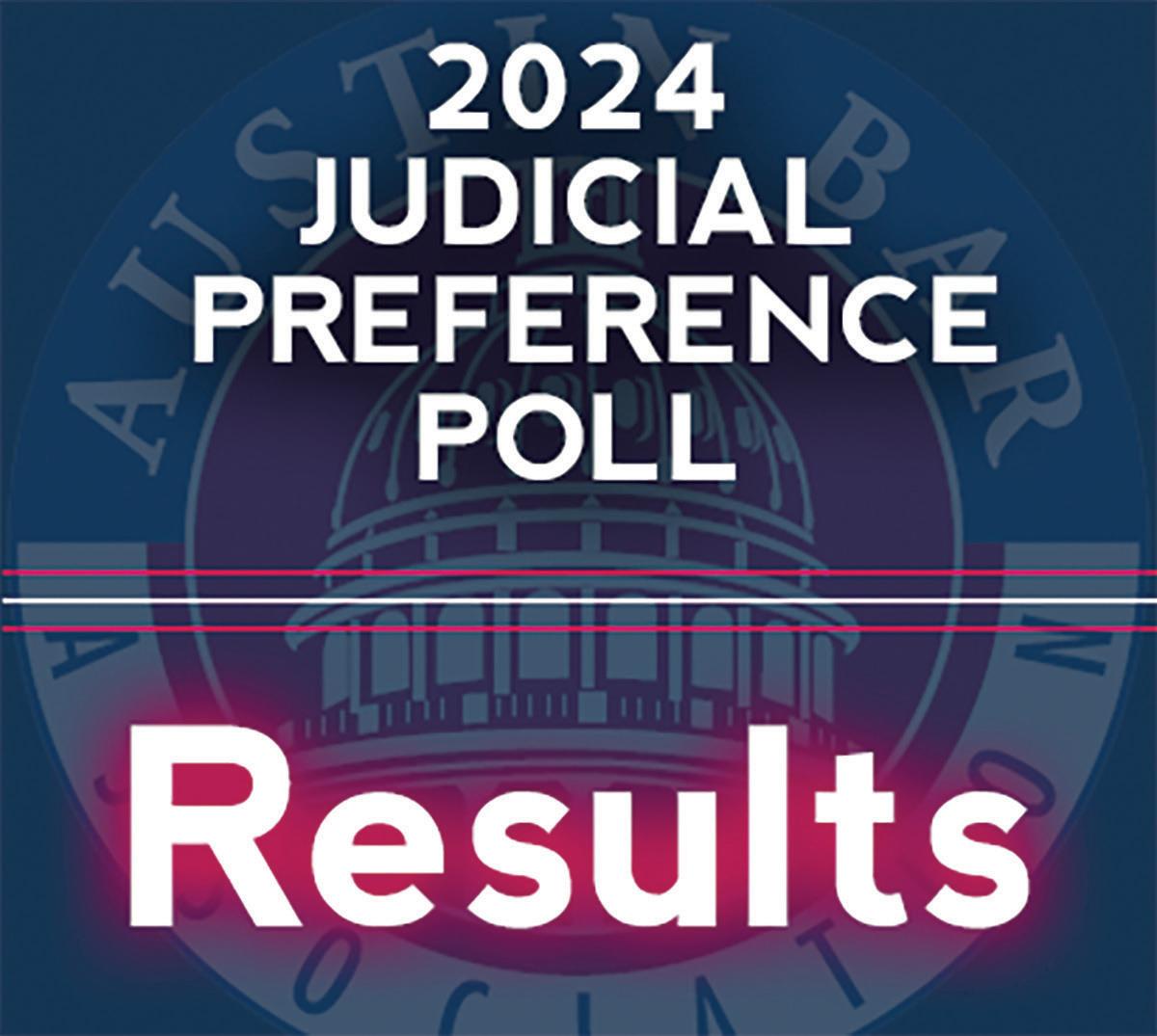
a nonprofit, voluntary association working to enhance the legal profession, administration of justice, and the community through ed-
ucation, networking, and public service. The Bar represents approximately 3,800 legal professionals in the Austin area. AL
Scan For Bio Janelle Palfreyman, CTFA Vice President and Trust Officer (512) 298-5848 | ArgentTrust.com | 3508 Far West Blvd., Ste 375, Austin, TX Austin-based Wealth Management that puts 24 AUSTINLAWYER | MARCH 2024
Austin Bar Members Emerge Victorious in Toxic Mold Lawsuit as Plaintiff, Attorney
Austin Bar member Kristina Baehr and her family recently won a case arising out of toxic mold in their home.
Baehr is a trial attorney and the founder of Just Well Law, PLLC, which specializes in representing people exposed to toxic environments. She founded her firm as a result of her experience living in a mold-infested home. Before that, she was an intellectual property attorney.
Baehr and her family were represented in their case by another Austin Bar member, Kevin Terrazas of Terrazas PLLC, along with Robert McKee of the McKee Law Group in Florida,
In the case (No. D-1GN-21-002112, 353rd District Court), the Baehrs alleged that they lost their home and belongings due to toxic mold during the COVID-19 pandemic.
“The damage was caused by grossly negligent—and even reckless—design and construction,” reads a press release issued by Just Well Law. “The defendants neglected to waterproof the home, even in the areas most prone to water intrusion, and then they insulated the home with spray foam without proper exits, so that the water festered in the wall cavities.”
Additionally, the lawsuit says, the HVAC company installed a
system “that had no way to properly condition the space without creating high levels of humidity.”
This resulted in water damage, “rot, and growth” infecting the walls, which went undetected for years, the press release says.
The court found that the family lost their home to toxic mold due to shoddy construction, and that homebuilder, the roofing company, and the HVAC company were all negligent in the home’s construction.
The Baehr family accepted settlements with the homebuilder and the roofing company, but the HVAC company decided to go to trial.
At trial, the jury awarded punitive damages against the HVAC company. The final judgment was $3.84 million. After deducting proportional liability, the Baehrs’ share was $3.1 million.
The Baehrs said that they are grateful for the work of their lawyers.
“We brought this case not only for our own family but for all those who have been poisoned by the negligence of companies that turn a blind eye to toxic exposure they create,” reads the Just Well press release. “Every family has the right to a home with safe air, and we want families like ours to know that there’s hope in the justice system.” AL
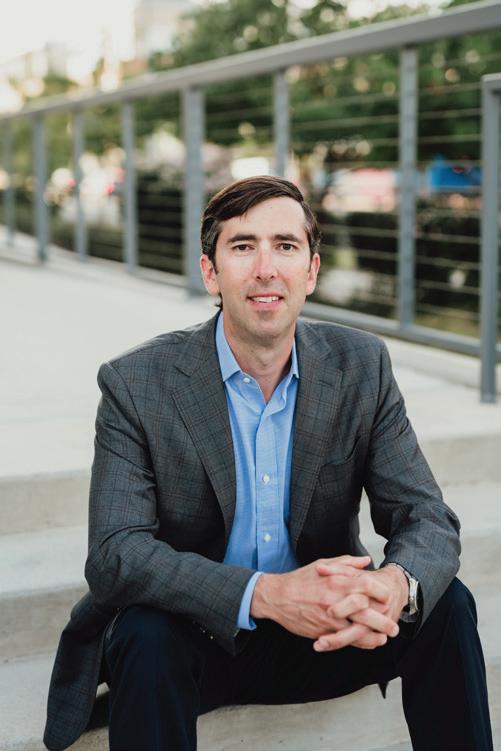
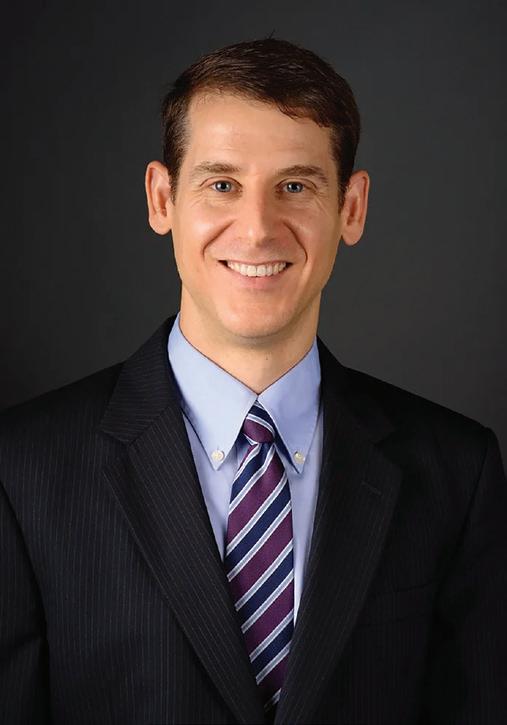



You’re busy looking out for your clients’ needs. Who’s looking out for yours? Jim Kaighin, Jr., CFP Financial Professional ® 3305 Northland Dr., Suite 414 Austin, TX 78731 512-302-6051 kaighinjr@momentumin.com Member: FINRA/SIPC
ABOVE LEFT: Austin Bar member Kevin Terrazas, of Terrazas PLLC, represented the Baehr family in their toxic mold suit.
ABOVE RIGHT: Austin Bar member Kristina Baehr, one of the plaintiffs in the case, is an Austin trial attorney. As a result of her personal experience living in a mold-infested home, she founded Just Well Law, which specializes in representing people exposed to toxic environments.
MARCH 2024 | AUSTINLAWYER 25
BOTTOM: Kristina and Evan Baehr and their family. Photo courtesy of Just Well Law.
Houston Program Teaches Prisoners Speech and Debate
Aprison speech-and-debate program has relaunched in Houston after a three-and-a-halfyear hiatus.
The Houston chapter of the Rikers Debate Project (RDP) will return to the Harris County Jail to teach inmates how to effectively argue.
The Houston chapter was founded in 2019 by Caitlin Halpern, a commercial litigation associate at a Houston law firm. Halpern is a former public defender and paralegal at a criminal defense firm.
She moved to Houston from New York in 2019, and it is from New York’s Rikers Island jail that RDP originates.
Since 2016, RDP volunteers have taught speech and debate in jails and prisons, at first just in the boroughs of New York City but eventually expanding to New Jersey, Connecticut, Maryland, New Orleans, and Houston.
The volunteers are a mix of formerly incarcerated individuals who participated in the debate project, as well as volunteer attorneys.
In Houston, Halpern and her volunteers teach in teams, but the volunteers are not required to have prior experience in either debate or teaching.
“The most important quality is interest in getting to know our students and empowering them to advocate for themselves,” Halp-
ern said to The Texas Lawbook
RDP’s website says its mission is to channel the skills of competitive debate to give incarcerated and formerly incarcerated people a greater say in the decisions that affect their lives.
“By teaching skills like advocacy, communication, conflict resolution, and public citizenship, we bring issues of the city and nation to our students, and bring their voices outside of the jailhouse walls,” the website says.
The website also features a handwritten letter from one of RDP’s prisoner-participants.
“This whole ‘Rikers Debate Project’ is probably one of the best ideas and opportunities that we can partake in,” the letter reads. “What could we as inmates/convicts be doing in the housing units that is better? I really do feel better about myself … . I was able to show New York City and the social media world that not all detainees, convicts, and inmates are dumb animals. I beat two Columbia University students in a public debate!”
Halpern told The Texas Lawbook that one former RDP student was able to get into Columbia University’s College of Social Work.
For more information about RDP, visit rikersdebateproject.org. AL
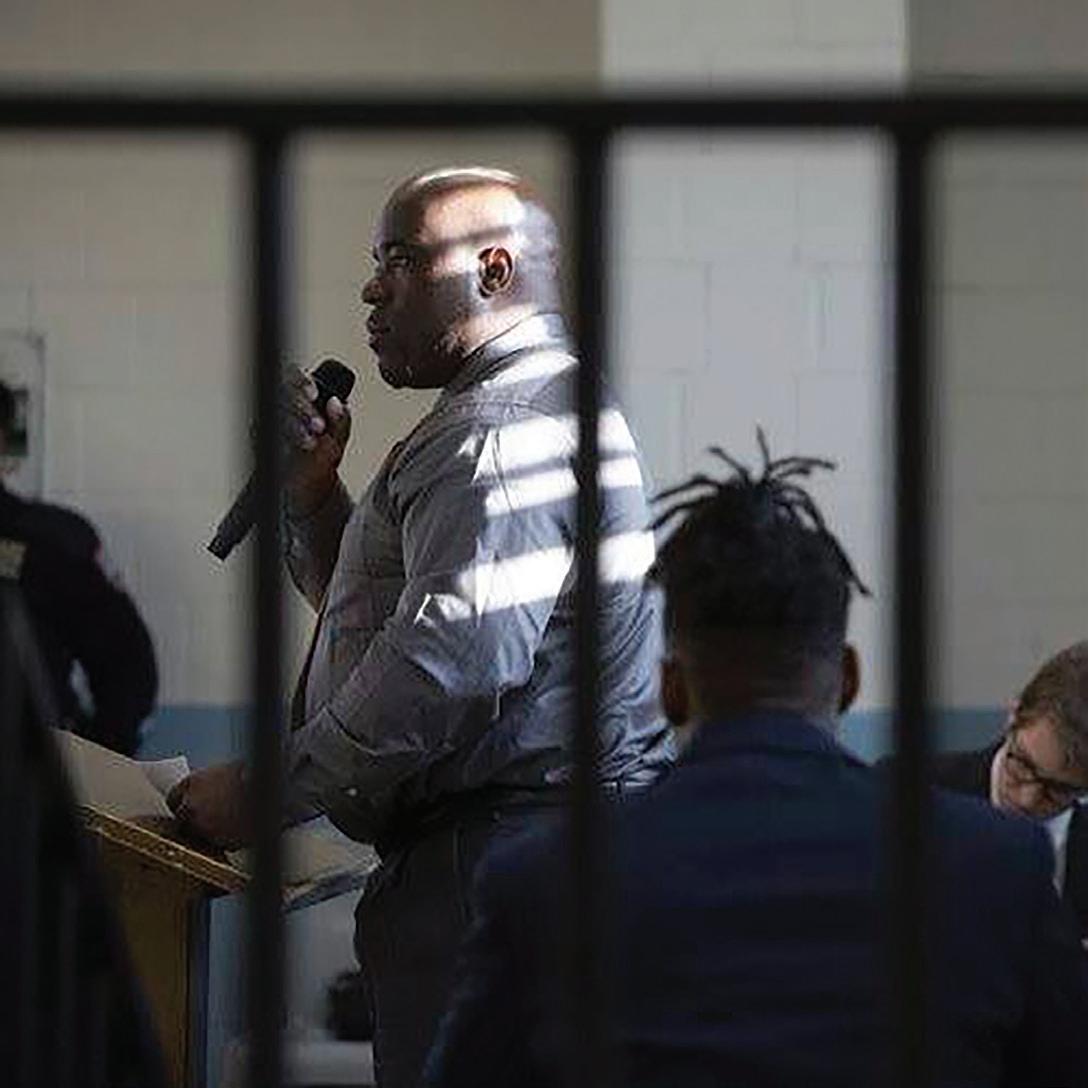
“I was able to show New York City and the social media world that not all detainees, convicts, and inmates are dumb animals. I beat two Columbia University students in a public debate!”
—Rikers Debate Project prisoner-participant
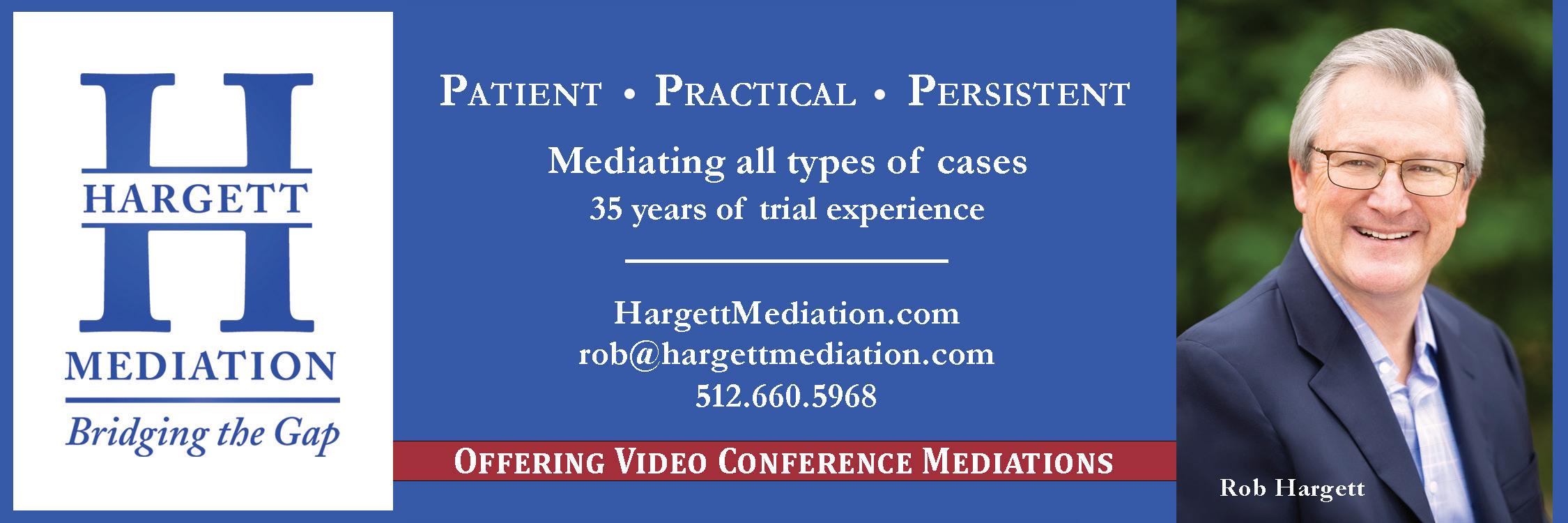 Photo from Rikers Debate Project’s Facebook Page.
Photo from Rikers Debate Project’s Facebook Page.
26 AUSTINLAWYER | MARCH 2024
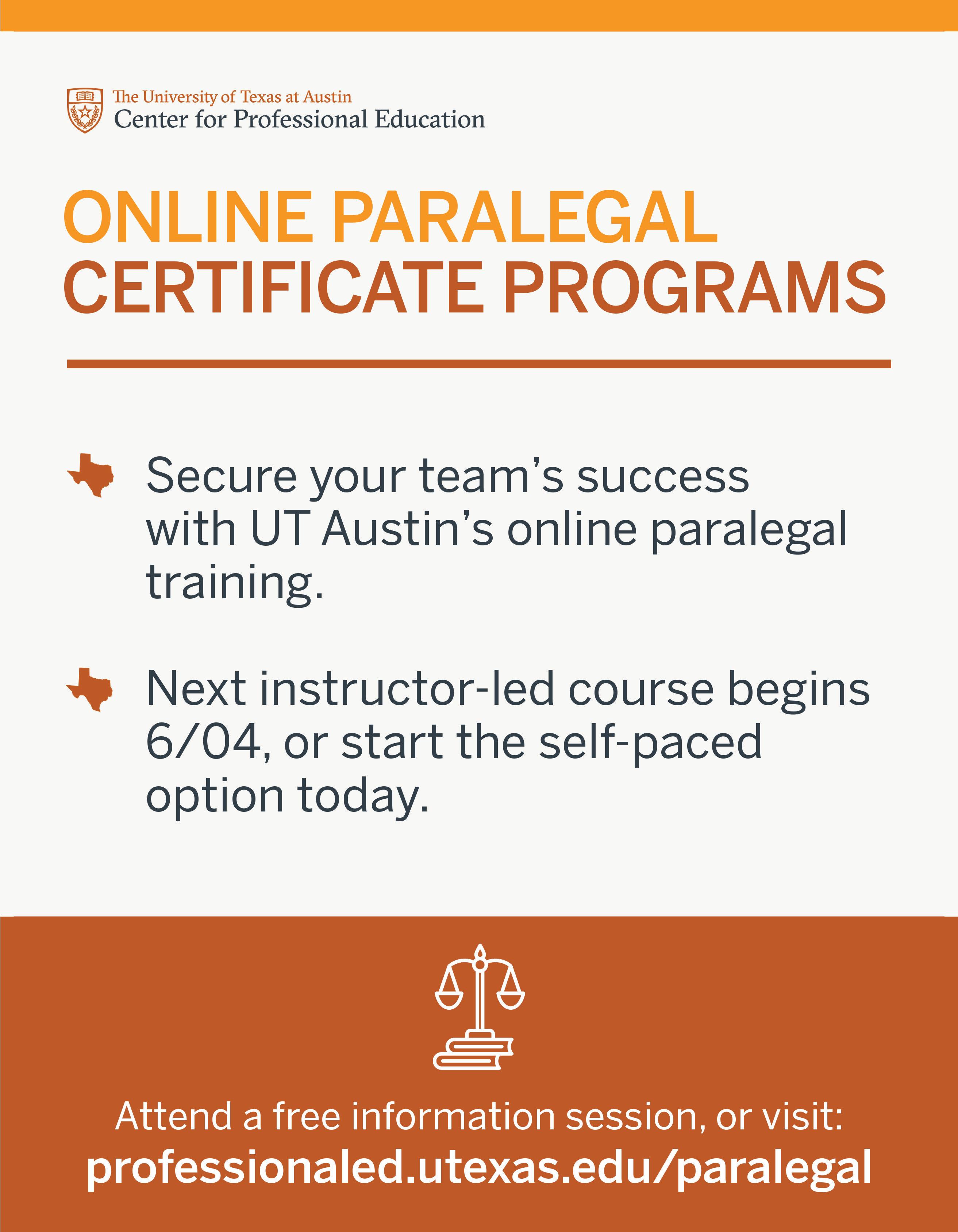
Anti-Defamation League Releases Texas Hate Crime Report
The Anti-Defamation League Center on Extremism has released statistics on hate crimes and extremism movements in Texas, along with recommendations on how to address such crimes and movements.
In 2022, there were 212 antisemitic incidents, up from 112 in 2021, according to “Hate in the Lone Star State: Extremism & Antisemitism in Texas.”1
In 2021 and 2022, there were two extremist murders in Texas and six terrorist plots, reads the report, while in 2023 Mauricio Martinez Garcia shot and killed eight people and wounded seven others in a parking lot in Allen. The report says Garcia was motivated by antisemitism, misogyny, and white supremacy.
Since 2021, there have been 28 “extremist events” in Texas, such as “banner drops, flash demonstrations, training events, fight nights, protests, rallies, and meetings.”
In 2022, there were 526 instances of white supremacist propaganda distributions across Texas, up from 329 in 2021. The majority of these distributions are from Patriot Front and Goyim Defense League, both extremist movements, according to the report.
There were 542 hate crimes reported to the FBI in 2021—the latest year available—says the report.
The George Washington University Program on Extremism has tracked 968 individuals charged in relation to the Jan. 6, 2021, riot, and of these 74 are from Texas— the second most in the nation, according to the report.
Texas has also recorded seven incidents of threats and harassment against local officials since Jan. 1, 2020, according to the report.
The report urges Texas Gov. Abbott to convene a We Stand United Summit, similar to that held at the White House in September of last year. The summit at the White House featured “a national address from President Biden, as well as bipartisan panels and conversations on

countering hate-fueled violence, preventing mobilization to violence, and fostering unity,” reads unitedwestand.gov.
The report also suggests that Texas create a State Strategy to Counter Hate-Motivated Terrorism “to assess and create transparency mechanisms” for threats.
The report recommends the creation of a Terrorism Prevention Strategy and Grant Program, similar to the Department of Homeland Security (DHS)’s Center for Prevention Programs and Partnerships. Like the DHS program, this proposed program would provide “grants to programs that focus on terrorism prevention in Texas … and develop curriculum and training on addressing domestic terrorism.”
The report urges Texas to continue supplementing the federal Nonprofit Security Grant Program. The program provides funding for “target hardening and other physical security enhancements and activities to nonprofit organizations that are at high risk of terrorist attacks.”
The report also suggests the Texas Legislature should enact legislation similar to the federal Domestic Terrorism Prevention
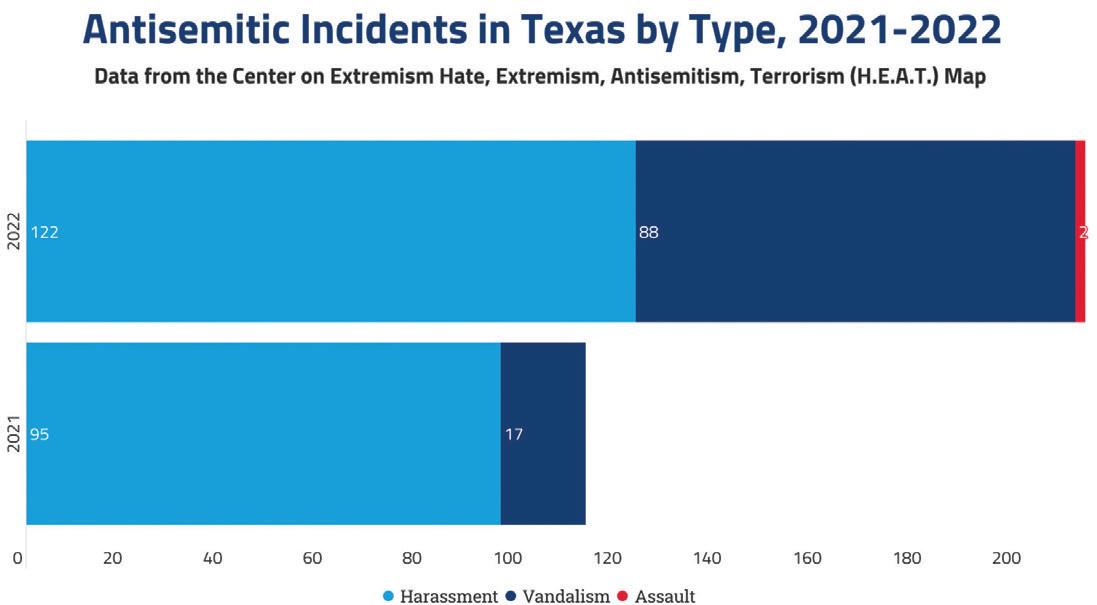
Act and create state offices to address the threat of domestic terrorism in Texas. It suggests these offices should be under the umbrella of the Texas Department of Public Safety’s Intelligence and Counterterrorism Division and/ or the Texas Division of Emergency Services.
“These offices would allow for an increased understanding of the hate crimes nexus of domestic violent extremism and options for law enforcement insider threat vetting,” the report reads. “While some of these measures can be accomplished through executive action, the State Legislature should consider codifying these measures into law.”
The report also suggests Texas create a task force to conduct research and develop best practices for reducing hate on social media platforms in the state.
Additionally, the report recommends Texas pass legislation to allow “victims of severe forms of harassment, such as doxing” to take action against the perpetrator.
Doxing is a term to describe when someone’s information, such as physical address, phone number, email address, etc., is intentionally posted and distributed online.
Nevada and Illinois have laws allowing doxed individuals to take civil actions against doxers, and the report urges Texas to adopt similar laws.
28 AUSTINLAWYER | MARCH 2024
Patriot Front march in Austin on July 8, 2023. Photo from the ADL Center on Extremism’s “Hate in the Lone Star State” report.
The report also encourages Texas to create a Commission on the State of Hate “to gather information and assess new options for addressing hate in Texas.”
The report suggests Texas law enforcement should be mandated to report hate crime data to the FBI “pursuant to the federal Hate Crime Statistics Act.”
Texas law enforcement should also be required to undergo hate crimes training, the report recommends.
Hate crime laws under Texas Code of Criminal Procedure article 42.014 should be strengthened by:
• Adding ethnicity and gender identity to the list of protected identity characteristics, and removing the incorrect and exclusive terminology of “sexual preference”;
• Ensuring that the statute covers “mixed motive” hate crimes; and
• Ensuring that the statute explicitly covers so-called “mistaken identity hate crimes by adding “actual or perceived” language.”
The report also recommends “anti-bias education for young people” to prevent hate crimes in the first place.
The report ends by recommending the Texas Legislature pass laws prohibiting discrimination on the basis of sexual orientation or gender identity in employment, public accommodations, housing, and state contractors; and adding gender identity or expression to Texas hate crime laws. AL
ENDNOTE
1. https://www.adl.org/resources/ report/hate-lone-star-state-extremism-antisemitism-texas.
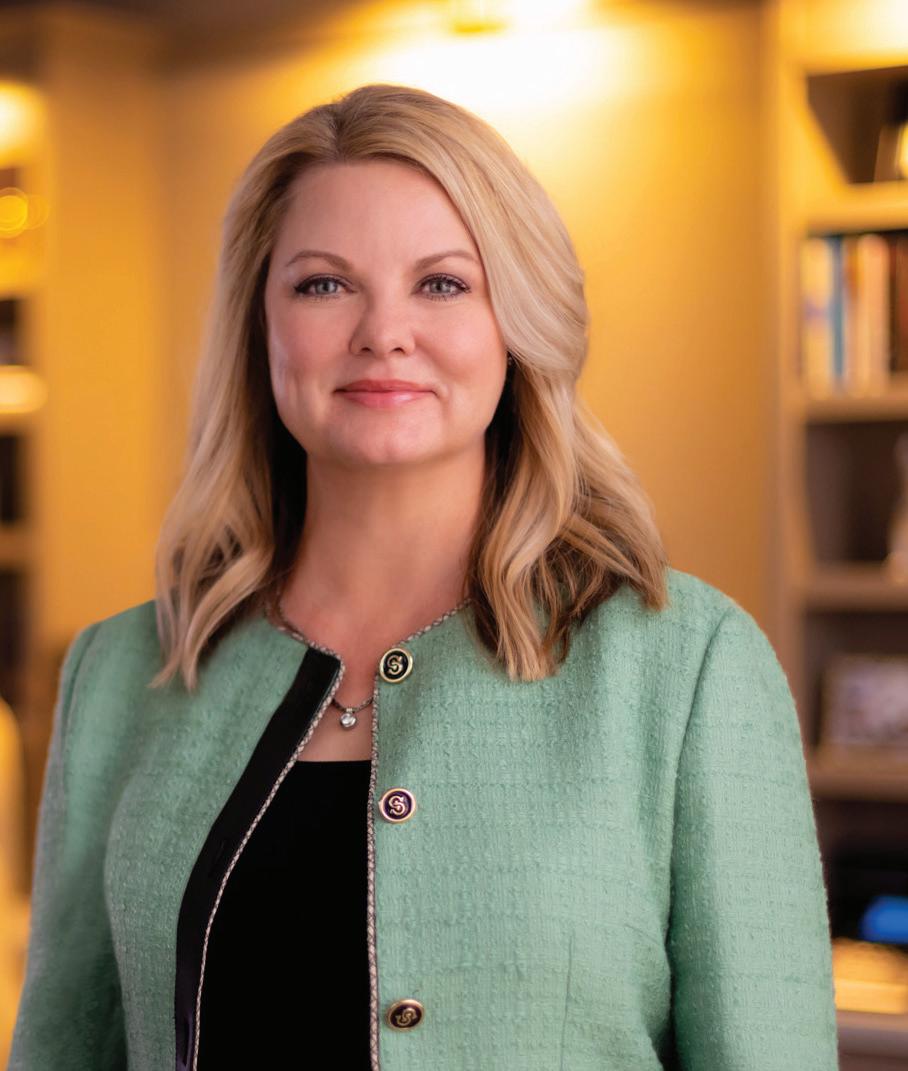







MARCH 2024 | AUSTINLAWYER 29
Bending the Rules: Texas Access to Justice Commission Recommends Allowing Paraprofessionals to
Provide Limited Legal Representation
In October 2022, the Texas Supreme Court directed the Texas Access to Justice Commission (TAJC) to study existing rules and recommend actions that would accomplish two goals:
1. Allow qualified non-attorneys to provide limited legal services directly to low-income Texans; and
2. Allow non-attorneys to have economic interests in entities that provide legal services to low-income Texans while preserving attorneys’ independence.
The TAJC formed a working group that met throughout 2023 to study these issues and consider input from the bench, the bar, community partners, and the public.
In December 2023, the working group released its report and recommendations.1
In January 2024, the commission voted against the working
group’s proposal to create a pilot program permitting non-attorney ownership for entities serving low-income Texans.2 However, the commission voted to approve the following recommendations regarding paraprofessional representation from the working group’s report:3
The working group recommends that non-attorney paraprofessionals, such as legal assistants and paralegals, be able to provide limited legal services and representation, provided they have obtained the appropriate license and maintain it.
The working group recommends the Judicial Branch Certification Commission (JBCC) act as the regulatory agency that would approve, license, and oversee legal paraprofessionals and non-attorney-owned firms providing legal

services. This regulatory authority could be granted to the JBCC by the Texas Supreme Court, which is authorized by Texas Business Organizations Code section

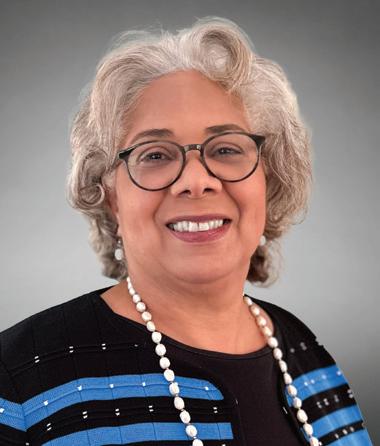
152.051 to do so.
As these proposals are being considered to help “low-income” Texans, the working group’s report recommends defining

Local Solutions. Global Reach. 30 AUSTINLAWYER | MARCH 2024
“low-income” as at or below 200 percent of the federal poverty guidelines as determined by the U.S. Department of Health and Human Services.
The working group further recommends that individuals applying for legal services provided by non-attorneys or by entities partially owned by non-attorneys self-certify in either a sworn or unsworn affidavit that they are low-income.
The working group recommends the Texas Supreme Court, through the JBCC, license paraprofessionals to engage in particular types of legal representation in certain substantive legal areas. Paraprofessional legal representation should be limited to specific subject-matter areas where there is high demand for legal help from low-income individuals, the report says, such as family law, probate and estate law, and consumer-debt law.
Under this recommendation, paraprofessionals licensed in family law would be able to offer limited legal representation in uncontested divorce cases without attorney supervision. The scope of their work would consist of assisting a client with completing and filing forms; preparing affidavits in support of uncontested temporary orders and uncontested divorce decrees; providing procedural information, as opposed to legal advice, to an otherwise unrepresented litigant; and communicating with court staff and any attorney or other paraprofessional retained by the opposing party.
Paraprofessionals licensed in probate and estate law would be able to represent a client in uncontested courtroom proceedings if the proceedings pertain to a muniment of title, and to assist with filing such forms as HIPAA releases, annual reports of person in guardianship, medical powers of attorney, declarations of guardian, directives to physicians, declarations for mental health treatment, supported decision-making agreements, statutory durable powers of attorney, transfer on death deeds, small estate affidavits, and muniment of title applications.
Paraprofessionals licensed in consumer-debt law would be able
to appear for and represent any party that is an individual, as opposed to any entity of any type, regarding the preparation, litigation, and settlement of a debtclaim case. This would include perfecting an appeal of a judgment from justice court to county court, as well as handling any matter related to post-judgment collection, discovery, and receiverships.
The working group recommends amending Texas Rule of Civil Procedure 500.4(a) to include two new categories:
1) licensed paraprofessionals, who can provide representation within the scope of their license as described above; and
2) Community Justice Workers, a new option for justice-court representation, who would be licensed and trained in specific tasks, such as providing representation relevant to those tasks alone and working under the supervision of an attorney employed by a legal-aid or other nonprofit entity.
Similar to attorneys, the working group recommends that paraprofessional licensing and regulating encompass qualification, examination, character and fitness assessments, continuing legal education, ethics codes and requirements, liability insurance considerations, annual dues and reporting, and discipline.4 AL
ENDNOTES
1. https://www.texasatj.org/sites/default/files/2023.12.05%20Final%20 Report.pdf.
2. https://blog.texasbar.com/2024/01/ articles/access-to-justice/texas-access-to-justice-commission-takesaction-on-working-group-report/.
3. Id.
4. https://www.texasatj.org/sites/default/files/2023.12.05%20Final%20 Report-Appendices.pdf.
Better Evidence for Winning Cases For 25 Years TravisInvestigations Travis Investigations, Inc. P.O. Box 33281 Austin, Texas 78764 tel: (512) 447-6331 principal@travisinvestigations.com www.travisinvestigations.com Licensed by the Commission on Private Security License Number A09738 MARCH 2024 | AUSTINLAWYER 31
continued from page 1.
Keel spoke about Edwards.
Each video was followed by thunderous applause from the audience. This year’s honorees have truly captured the admiration of Austin’s legal community.
With your help, the Gala raised more than $234,000 for the Austin Bar Foundation, which will use the money to support the foundation’s many law-related programs and projects, including: Austin Adoption Day; the CANLAW Clinic; the Veterans Legal Assistance Program; the Diversity Fellowship
Program; the LGBTQ+ Scholarship; the Justice Mack Kidd Fund; and the Denise Hyde Scholarship Fund.
Additionally, since the foundation’s inception in 2005, it has awarded more than $210,000 in grants to law-related organizations. Past grant recipients include: American Gateways; Volunteer Legal Services; Austin Community Law Center; Austin Classical Guitar’s Juvenile Justice program; CASA of Travis County; and the Texas Fair Defense Fund,
to name a few.
The Fund-a-Need session raised $26,250, which will be used to provide grants to entities and organizations offering DEI-related legal services in Central Texas.
If you were unable to attend the event, you can still make a donation to the foundation. Please scan the QR code on the cover of this magazine to make a donation.
The Austin Bar Foundation sincerely thanks Gala Committee Co-Chairs Nadia Bettac and Mary-Ellen King for their efforts
in pulling off this extraordinary event. Thank you also to all the volunteers who assisted with registration, setup, and breakdown.
Be sure to watch the videos honoring the Distinguished Lawyers and David H. Walter award winners on YouTube at https:// shorturl.at/afpO6.
Thank you again for your support, and we can’t wait to see you next year! AL

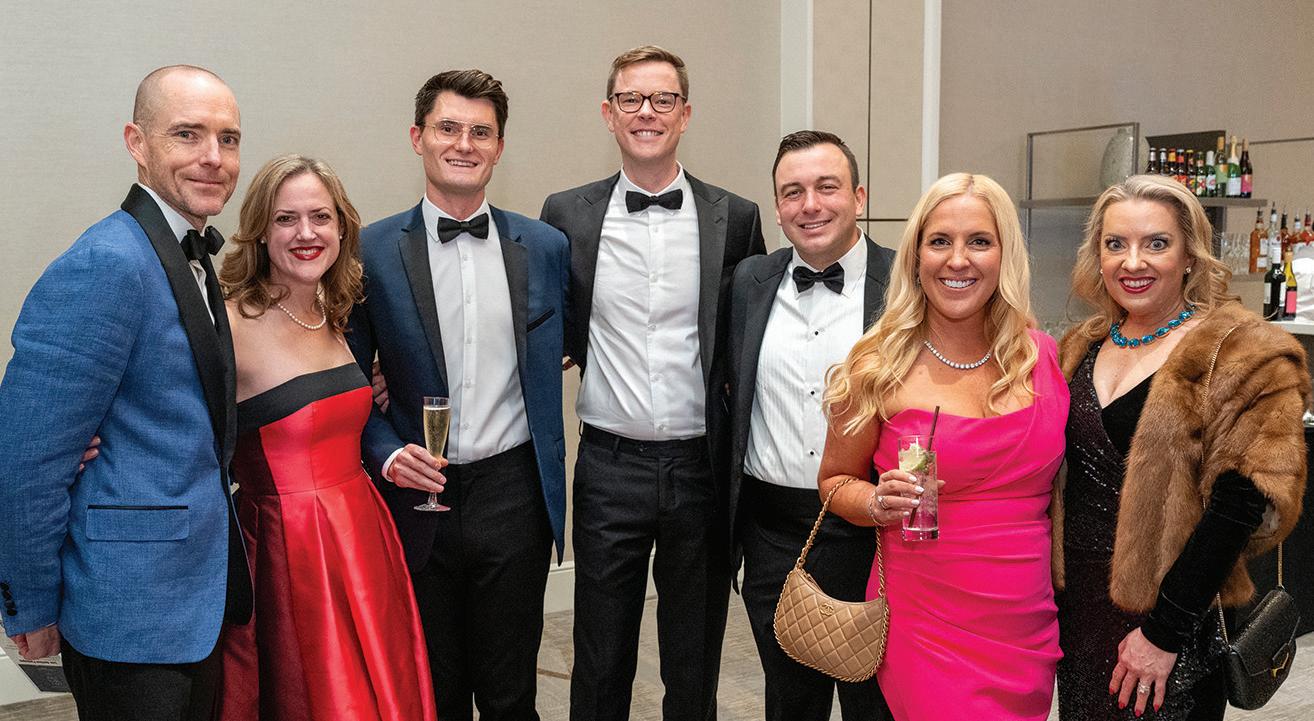


 (L-R): David Courreges, Jasleen Shokar, Alan Lin, Kiele Pace, Jacquelyn Wilson, Avery Leissner, Lena Proft, and Murad Auctions staff member.
(L-R): Louie Riesch, Kennon Wooten, Ryan Beck, Elliott Beck, Chris Kirker, Holly Davis, and Amanda Garrett Taylor.
One of the centerpieces at the Gala, a rose in a bell jar, inspired by Beauty and the Beast.
(L-R): Judge Daniella DeSeta Lyttle, Adrianne Waddell, Dr. James Lyttle, and Judge Laurie Eiserloh.
(L-R): David Courreges, Jasleen Shokar, Alan Lin, Kiele Pace, Jacquelyn Wilson, Avery Leissner, Lena Proft, and Murad Auctions staff member.
(L-R): Louie Riesch, Kennon Wooten, Ryan Beck, Elliott Beck, Chris Kirker, Holly Davis, and Amanda Garrett Taylor.
One of the centerpieces at the Gala, a rose in a bell jar, inspired by Beauty and the Beast.
(L-R): Judge Daniella DeSeta Lyttle, Adrianne Waddell, Dr. James Lyttle, and Judge Laurie Eiserloh.
32 AUSTINLAWYER | MARCH 2024
(L-R): Judge Jessica Mangrum, Melissa Lorber, Sherine Thomas, and Justice Chari L. Kelly.


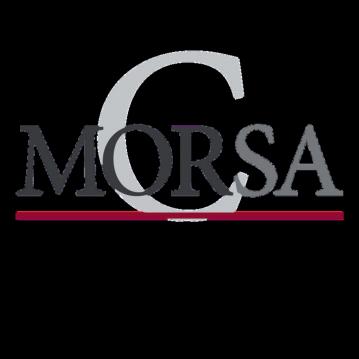
Let us help you uncover hidden opportunities at EmbraceVolatility.com. Avoid Embrace volatility AUDIT / TAX / ADVISORY / CONSULTING Visit www.crowe.com/disclosure for more information about Crowe LLP, its subsidiaries, and Crowe Global. © 2023 Crowe LLP. MKTTX2401-003A MORSA Capital Offering investment opportunities earning PA$$IVE INCOME, secured by real estate Partner with us on the financial side of real estate deals and earn 10-12% interest on your investment! www.morsacapital.com 210-862-8687 MARCH 2024 | AUSTINLAWYER 33
The Bogeyman of Justice
BY CLAUDE DUCLOUX
The opinions expressed in Entre Nous are those of the author and do not necessarily represent the views of the Austin Bar Association membership or the Austin Bar Association board of directors.
Every culture has its scary legends, usually designed to frighten children into behaving as adults wish—or face horrible consequences. Fear of unnatural and unknowable forces has dominated the human psyche for thousands of years. The mythical “Bogeyman” is a fixture around the world: In Albania, he’s the Gogol; in Serbia, the Bauk; Germany has the Butzemann; and in Russia, the Babyka. In the Spanish-speaking cultures of South America, he is the Saco (the Sack Man who steals children).
Bogeyman has also become a metaphor, of course, for avoiding bad outcomes by not engaging in certain anti-social behaviors. All of us can name something we avoid in our efforts to keep the Bogeyman away, right? Don’t eat rich foods; don’t drive impaired; don’t forget to pay your taxes; and keep your religious rites. Life, through media, literature, and friendship, often introduces us to things that create fear in others. Clearly, we lawyers have our personal Bogeyman: risking

disciplinary action and embarrassment for missing a statute of limitations, a filing deadline, or another mistake. And sometimes those fears are on public display.
Take, for example, the chief lawyer and law enforcement officer of the State of Texas. We have a crystal-clear idea of the Bogeyman who torments his mortal being. It’s having to say the words, “I do solemnly swear to tell the truth … .”
And let’s take a minute to remember the duties of this important position. According to his website, he leads 750 lawyers in 38 divisions handling 30,000 cases annually. He claims to have filed dozens of lawsuits against the Obama Administration, so he is clearly very comfortable taking

others to court. Unfortunately, the shoe is now on the other foot, as he finally faces a trial brought by his own closest allies and appointees after they reported what they unanimously considered improper conduct—and were thereafter terminated by his office. The law says, “That ain’t right.”
I would mention the 20 articles of impeachment he faced. But that process was, as we saw, political theater, and nothing close to a real trial. Embarrassingly distant. Nevertheless, after that farcical impeachment (which required neither his attendance nor his testimony), he felt empowered. Protected. Home free.
But reality now has set in, and he must prepare for a real trial
in a real courtroom. And in this civil case, he must finally—at long last—give testimony under oath (cue the scary music). Remember, this chief lawyer has held dozens of press conferences over the years, denying facts, insulting his accusers, and promising the public that, upon final analysis, his accusers will lose, and justice will prevail. However, here’s the rub: Getting that victory seems to involve going to trial. And to go to trial, he must testify after promising to tell the truth. (The Bogeyman approaches.)
He has been ordered to appear for a deposition, quite a normal event in civil litigation. Of course, nothing stops him from pleading the Fifth Amendment to any
34 AUSTINLAWYER | MARCH 2024 ENTRE NOUS
Patrick Keel Former District Judge Mediator Arbitrator patrickkeel.com Available by video and in person.
question posed. But that would muddle his claims of innocence, wouldn’t it? And lying under oath might have worse consequences. So, in response to his deposition notice, he has pulled out more stops than a Nuremberg Pipe Organist in his terrified flight from his own promised exoneration. He filed a motion to prevent being deposed, which was denied, and he appealed that order to both the Court of Appeals and the Texas Supreme Court, losing in both appellate courts.
Faced with the terrible consequences that I suspect he fears would follow his deposition, he next had an epiphany. His newly reconstituted and contrary narrative is: “I give up. I’m too busy. Can’t we all just move on?” Translation: If prevailing involves testifying, he apparently wants to throw in the towel, and he appears to have some confidence that his friends in the “Lege” will pay the tab. Uh…“Check, please!” Sigh… Must be nice. His surrender, however, was not accepted by the trial court, which required him, once again, to appear for his long-awaited Feb. 1 deposition.
Flying to his rescue, at long last, was the Texas Supreme Court, contradicting its earlier ruling and postponing his depo for at least another month. After all, what’s the rush? The case has only been pending since 2020.
Now, it’s clear that legal precedent is an unreliable influence on the future of this case, so anything can happen. But given the skill with which our chief lawyer has held justice at bay, using procedural delays, objections and political influence like a virtuoso puppeteer, I predict another comet will hit the earth before this sees a courtroom. I do remain hopeful that, at some point, this legend of laches will finally end.
But the irony and hypocrisy should last longer. Let me summarize: Our chief attorney and law enforcement officer, who uses the court system unabashedly as a political tool, realizes he must face his accusers in a real courtroombefore a skilled judge and a jury of real citizens—not partisan politicians. And that, my colleagues, is exactly what should happen in this great state. I do not at all propose he be held to a higher stan-
dard than anyone else, but it is not unfair to expect someone in that office to prove he or she is worthy of our public trust.
In these situations, we, the lawyers of Texas, must remember that the Rule of Law, and its thoughtful analysis of fact under rules of evidence and procedure, is the ultimate destroyer of frauds and liars. And that, folks, is the longer definition of his Bogeyman. And while his Bogeyman may be his personal demon, we have another name for her: “Lady Justice.” It is our job to make sure she is protected. Keep the faith. AL

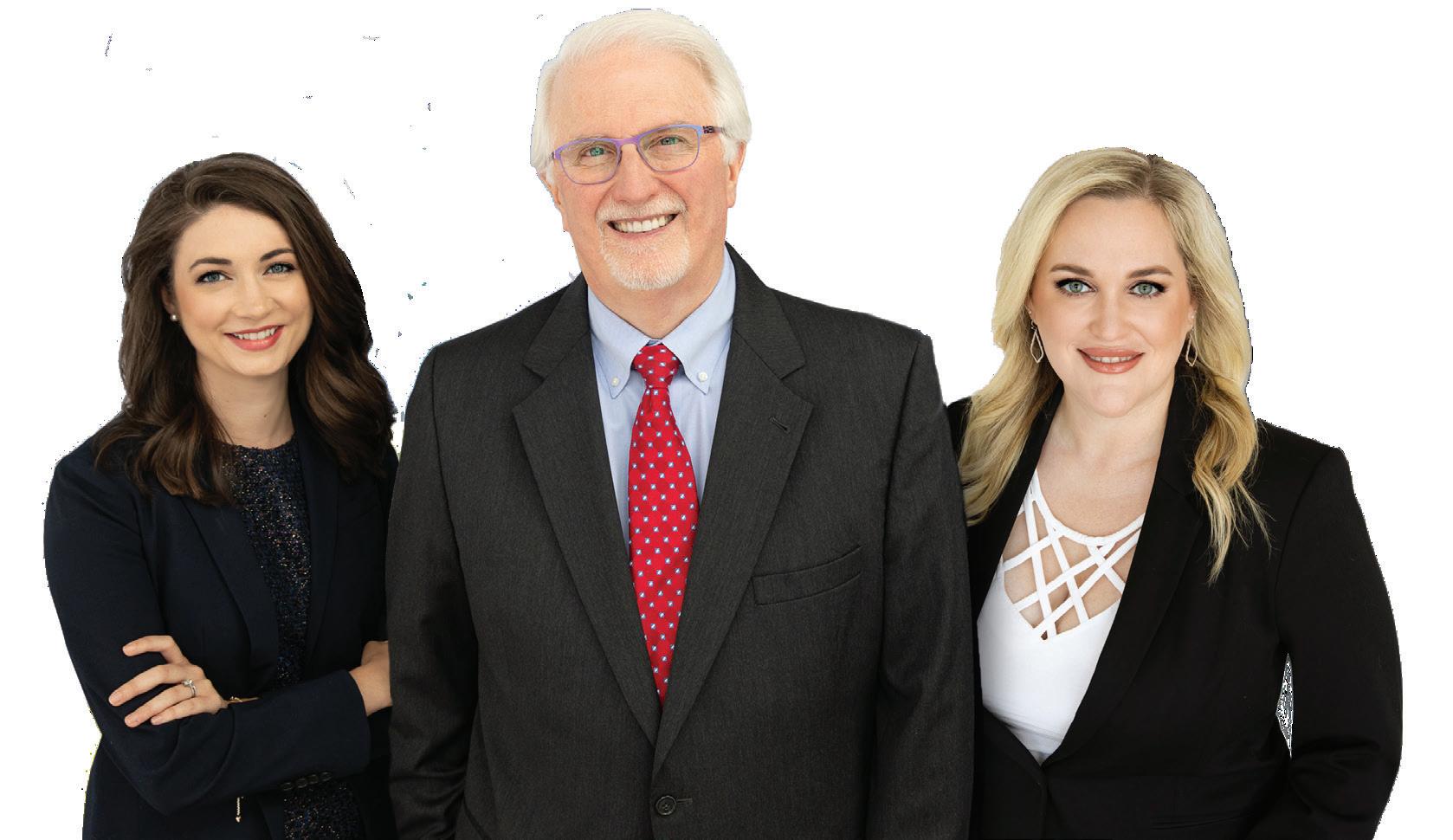
ADVERTISERS Apple Leasing 6 Argent Financial Group 24 Armbrust & Brown PLLC 11 Bollier Ciccone LLP 29 Broadway Bank - Holdsworth & Nicholas, Inc. Back Cover Burns Anderson Jury & Brenner, LLP 14 Cofer & Connelly, PLLC 5 Crowe LLP / Briggs & Veselka Co. 33 Foster Global, LLP 4 Gunn, Lee & Cave, P.C. 15 Hargett Mediation - Reed, Claymon, Meeker & Hargett, PLLC 26 JAMS 39 Judge Stephen Yelenosky 21 Knolle, Holcomb, Callahan & Taylor 21 Lakeside Mediation Center 20 Latitude 19 Law Office of Thomas Esparza, Jr., P.C. 3 Law Office of Tim Whitten 11 LawPay Inside Front Cover Momentum Independent Network 25 MORSA Capital 33 Noelke Maples St. Leger Bryant, LLP 21 Patrick Keel 34 Rose Resolution Group 11 Scott Baker Mediation, LLC 10 She Spies Private Eye, Inc. 16 Slack Davis Sanger 17 Texas Lawyers Insurance Exchange 3 The Snell Law Firm 9 Travis Investigations 31 USI Affinity 23 UT Austin Center for Professional Education - The University of Texas at Austin - DEV Building 27 Vaught Law Firm 35 You and I Create Co. 29 MARCH 2024 | AUSTINLAWYER 35 We’re Here. We’re Open. We’re Ready to Help. Video Conferencing and In-person Social Distancing Now Available FAMILY LAW Divorce Custody Same-Sex Marriage Appeals Modifications A Client-Centered Approach to Family Law We understand. We can help. LAW FIRM, P.C. Mediations Arbitrations Attorney Jimmy Vaught, Board-Certified in Family Law and Civil Appellate Law by the Texas Board of Legal Specialization Attorney Jillian French Board-Certified in Family Law by the Texas Board of Legal Specialization AustinDivorceLawyer.com 512.605.0999 Attorney Erin Leake Board-Certified in Family Law by the Texas Board of Legal Specialization

WEALTH & PRIVATE BANKING Experience premium, modern banking customized for you.
Private Banking team provides premium, modern banking and financial services curated specifically for your personal and business needs.
more than 83 years, Broadway Bank has been an integral part of Texas, evolving into one of the largest independently owned
in the state with more than $5 billion in assets and $3
in Wealth
assets. Speak with a Private Banker today. broadway.bank/private • (512) 465-6564 Private Banking at Broadway Bank is subject to eligibility qualifications. Eligibility criteria may include financial, professional, and/or account verification and evaluation. Subject to change without notice. Member FDIC. Rev. 02/24 / #1297450388
Broadway’s
For
banks
billion
Management
















































































































 Photo from Rikers Debate Project’s Facebook Page.
Photo from Rikers Debate Project’s Facebook Page.


















 (L-R): David Courreges, Jasleen Shokar, Alan Lin, Kiele Pace, Jacquelyn Wilson, Avery Leissner, Lena Proft, and Murad Auctions staff member.
(L-R): Louie Riesch, Kennon Wooten, Ryan Beck, Elliott Beck, Chris Kirker, Holly Davis, and Amanda Garrett Taylor.
One of the centerpieces at the Gala, a rose in a bell jar, inspired by Beauty and the Beast.
(L-R): Judge Daniella DeSeta Lyttle, Adrianne Waddell, Dr. James Lyttle, and Judge Laurie Eiserloh.
(L-R): David Courreges, Jasleen Shokar, Alan Lin, Kiele Pace, Jacquelyn Wilson, Avery Leissner, Lena Proft, and Murad Auctions staff member.
(L-R): Louie Riesch, Kennon Wooten, Ryan Beck, Elliott Beck, Chris Kirker, Holly Davis, and Amanda Garrett Taylor.
One of the centerpieces at the Gala, a rose in a bell jar, inspired by Beauty and the Beast.
(L-R): Judge Daniella DeSeta Lyttle, Adrianne Waddell, Dr. James Lyttle, and Judge Laurie Eiserloh.







